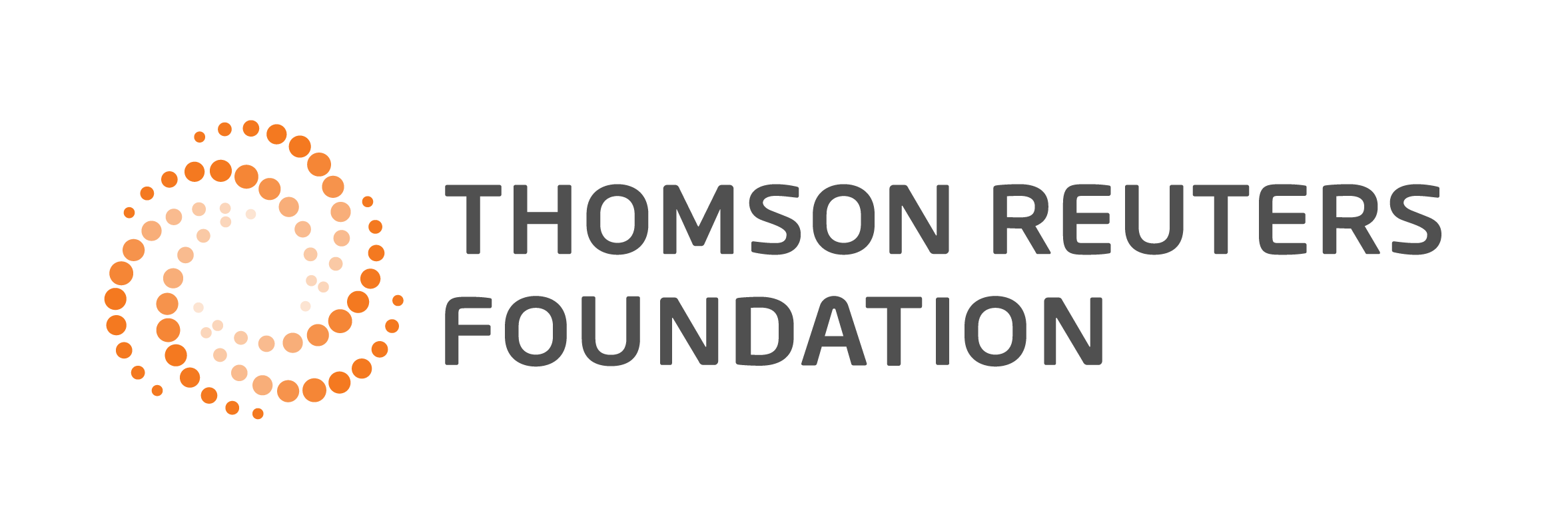Stonewall 50
Where next for LGBT+ lives?

When Tree Sequoia joined hundreds of LGBT+ people rioting in downtown New York 50 years ago, same-sex relations were illegal in more than 100 countries and every U.S. state had anti-sodomy laws.
"(The police) came in nasty," he told the Thomson Reuters Foundation outside the Stonewall Inn where the modern LGBT+ rights movements began on June 28, 1969, after a police raid.
"They pushed the wrong person and that person pushed them back and before you know it, they were beating up the cop and that started the whole rebellion."
Fast forward half a century and gay sex remains illegal in 69 countries and can be punished with death in seven nations.
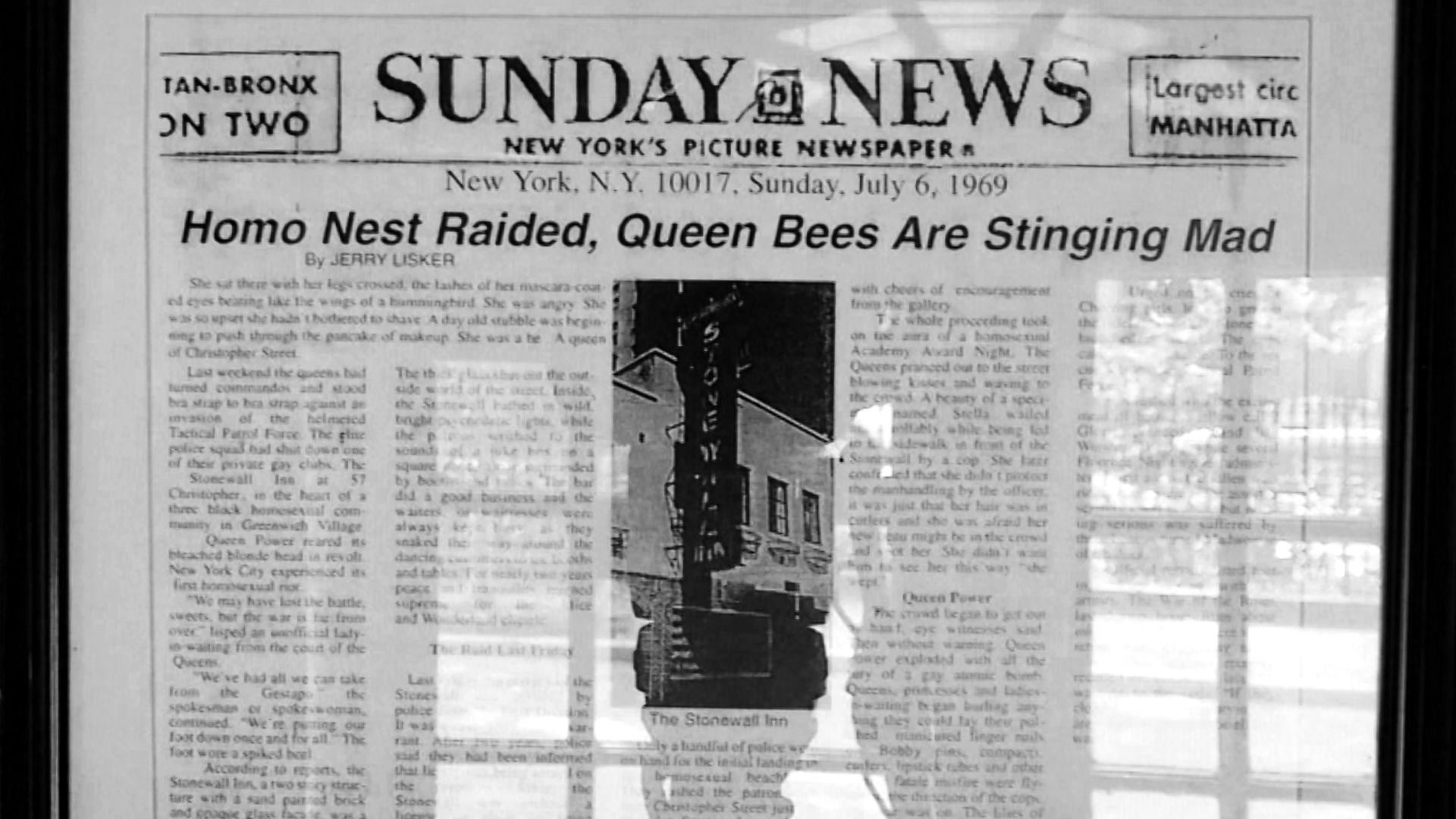
A framed amalgam of the New York Daily News’ coverage of the Stonewall riots is seen in this screengrab taken from video. Filmed in New York on June 23, 2015. Credit: Reuters
A framed amalgam of the New York Daily News’ coverage of the Stonewall riots is seen in this screengrab taken from video. Filmed in New York on June 23, 2015. Credit: Reuters
Exclusive data analysis by the Thomson Reuters Foundation showed while more countries are using legal clout to recognise LGBT+ rights, the pace of change has stalled in many countries amid an escalating conservative and religious backlash.
"There is a great danger in being complacent," said Eric Marcus, author of "Making History: The Struggle for Gay and Lesbian Equal Rights, 1945-1990".
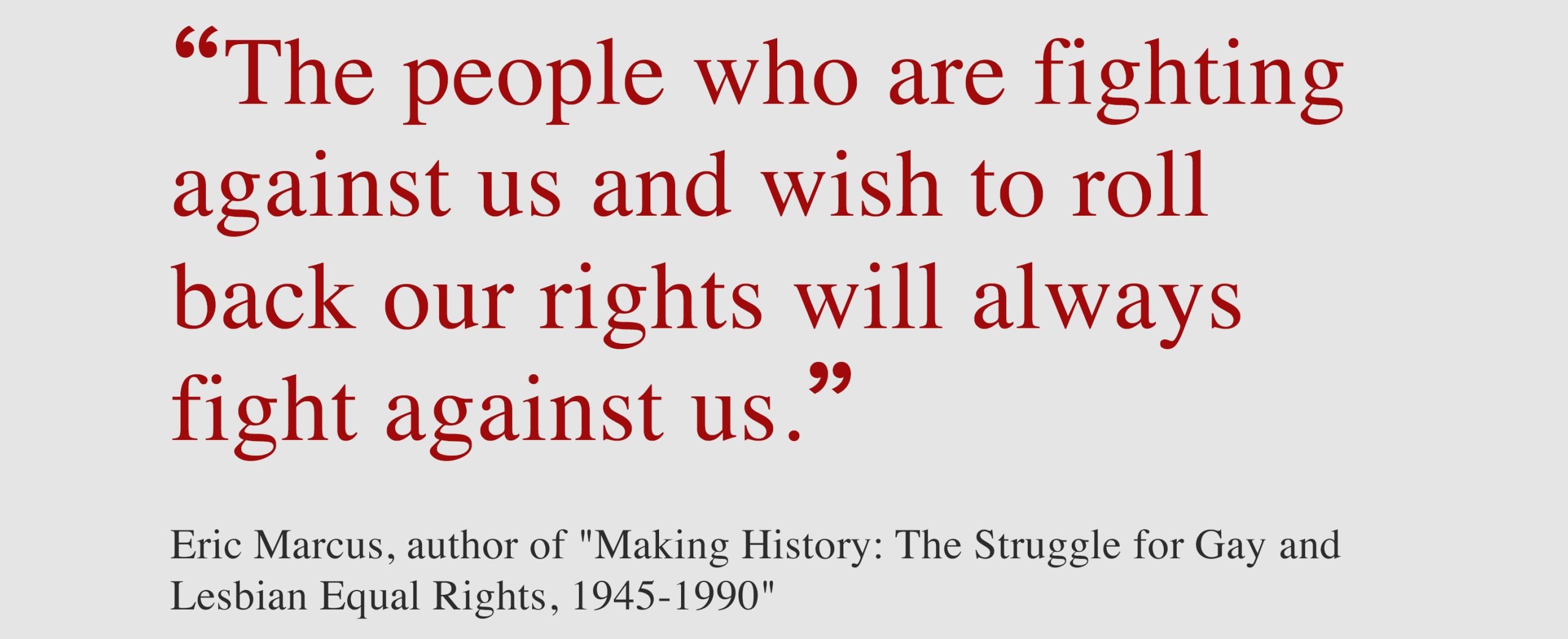
Campaigns for LGBT+ rights meet resistance, particularly in countries where conservative religions sway politics such as in Africa, the Middle East and Latin America .
Analysis of data from LGBT+ rights groups ILGA, Lambda Legal, Stonewall and external sources found 13 countries decriminalised gay sex in the 1970s and 26 in the 1990s.
But this dipped to five nations in the 1980s as the global HIV/AIDS epidemic dissuaded countries from action.
"This hindered the progress which we were making at the time towards social acceptance," said Matthew Hodson, executive director of NAM aidsmap, a British HIV/Aids information charity.
Twelve countries removed laws punishing same-sex relations in the 2000s, and 13 have lifted bans since 2010.
But it remains illegal to be gay in 32 of 54 countries in Africa. In the Asia-Pacific region, 18 countries outlaw same-sex relations and it is illegal to have gay sex in 10 Middle East nations.
The analysis found in Europe progress has slowed amid a conservative backlash highlighted by anti-gay rhetoric in some campaigns during European Union elections in May, such as Spain's far-right Vox party challenging LGBT+ rights.
"Sadly, this year we see concrete evidence of roll-back at political and legislative levels in a growing number of countries," said Evelyne Paradis, executive director of ILGA-Europe, a network of about 600 LGBT+ organisations.
The challenges remain 50 years after that night when Sequoia, then 30, was dancing in the Stonewall Inn and police raided the bar.
Debate rages still over who threw the first punch or first bottle, but for the first time the gay community fought back.
A parking meter was ripped out of the ground and used as a battering ram to get to the police. A rock was thrown through the window of the Stonewall Inn, followed by a lit garbage can, and the numbers of protesters grew and grew.
"There is the potential for what happened here to inspire people around the world," said Marcus.
Thousands marched in Chicago, New York, Los Angeles and San Francisco in 1970 to mark the first anniversary of the riots - and today more than 60 countries hold annual Pride marches.
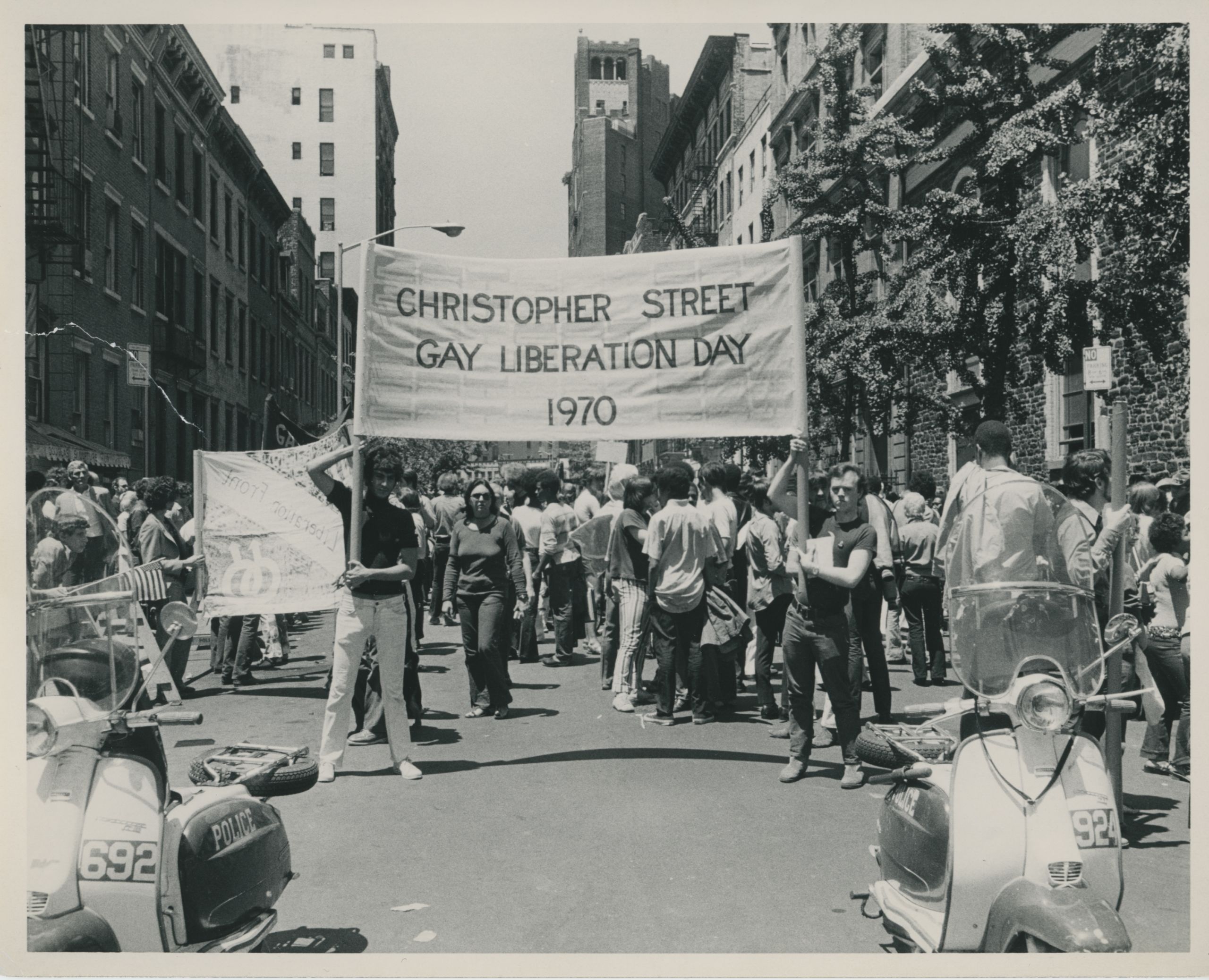
Participants in the Christopher Street Liberation Day march in 1970. The march commemorated the Stonewall riots the previous year, and developed into the modern-day Pride March. The LGBT Community Center National History Archive/Leonard Fink
Participants in the Christopher Street Liberation Day march in 1970. The march commemorated the Stonewall riots the previous year, and developed into the modern-day Pride March. The LGBT Community Center National History Archive/Leonard Fink
However, the Trump administration ruled this month that the rainbow freedom flag should not be flown on U.S. embassy flagpoles during Pride Month in June.
"The gay pride flag is offensive to Christians and millions of people of other faiths, not only in this country but around the world," Franklin Graham, president of the Billy Graham Evangelistic Association, wrote in his Facebook page welcoming the decision.
The battle in the global west has moved onto surrogacy and adoption laws, and intersex and trans rights, say campaigners. While in Asia and Africa, more fundamental battles for legalisation of gay sex and marriage equality are underway.
The past 12 months have been indicative of a growing split in how countries treat LGBT+ citizens.
This year Botswana and Angola decriminalised same-sex relations while Ecuador and Taiwan voted to allow same-sex marriage, following in the footsteps of 26 earlier nations.
But in May, Kenya upheld a ban on same-sex relations and Brunei announced it would impose the death penalty for gay sex, only overturning its decision after a global outcry.

Within a year, marches were
held in New York, Los Angeles,
San Francisco and Chicago.
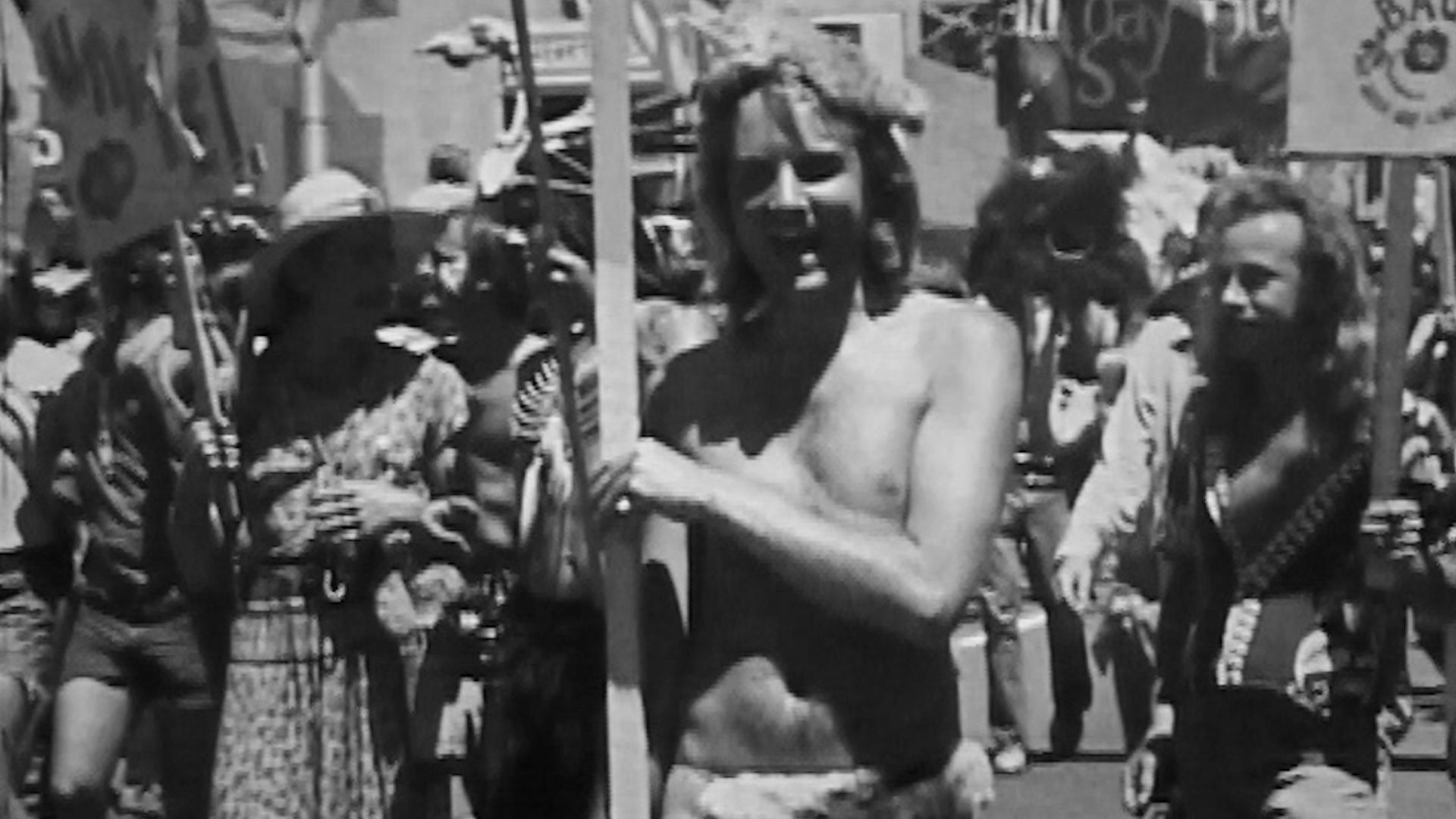

A total of 69 countries still criminalise gay sex with Britain's colonial past casting a long shadow globally.
Of the 53 countries in the Commonwealth, gay sex remains banned in 34, with British Prime Minister Theresa May in 2018 apologising for inflicting anti-gay laws on member nations.
But Commonwealth Secretary General Patricia Scotland said change was happening and seven of nine countries to lift bans in the past five years were Commonwealth members: Belize, Botswana, India, Mozambique, Nauru, Seychelles and Trinidad and Tobago.
"Our approach has been to work with national level institutions ... by harnessing their capabilities to advocate for and champion LGBT equality and inclusion," she said.
Many expected Kenya to follow Angola, which scrapped its "vices against nature" law in January, but Kenya upheld its ban.
Across the Middle East, social attitudes remain firmly against liberalising laws governing homosexuality.
A 2013 Pew Research Center report found the majority of people in Jordan, Egypt and Lebanon favoured a ban on gay sex.
Intersex rights are also emerging globally, with questions raised about the appropriateness of corrective surgery for people born with atypical chromosomes or sex characteristics.
In the United States, LGBT+ rights activists are pushing for a nationwide ban on "gay conversion therapy" for minors, a widely discredited attempt to alter sexual orientation or gender identity through psychological, spiritual or physical means.
Worldwide, Malta, Ecuador and Brazil have banned conversion therapy, while Britain, parts of Canada and Australia are mulling bans, said ILGA, a network of LGBT+ rights groups.
"Everyone thinks when marriage (equality) happened that a lot of things just got much better – and they did, but at a cost," said Sam Brinton, head of advocacy at suicide-prevention group The Trevor Project, which has been spearheading the move.
"We forgot the challenges still happening in our community."
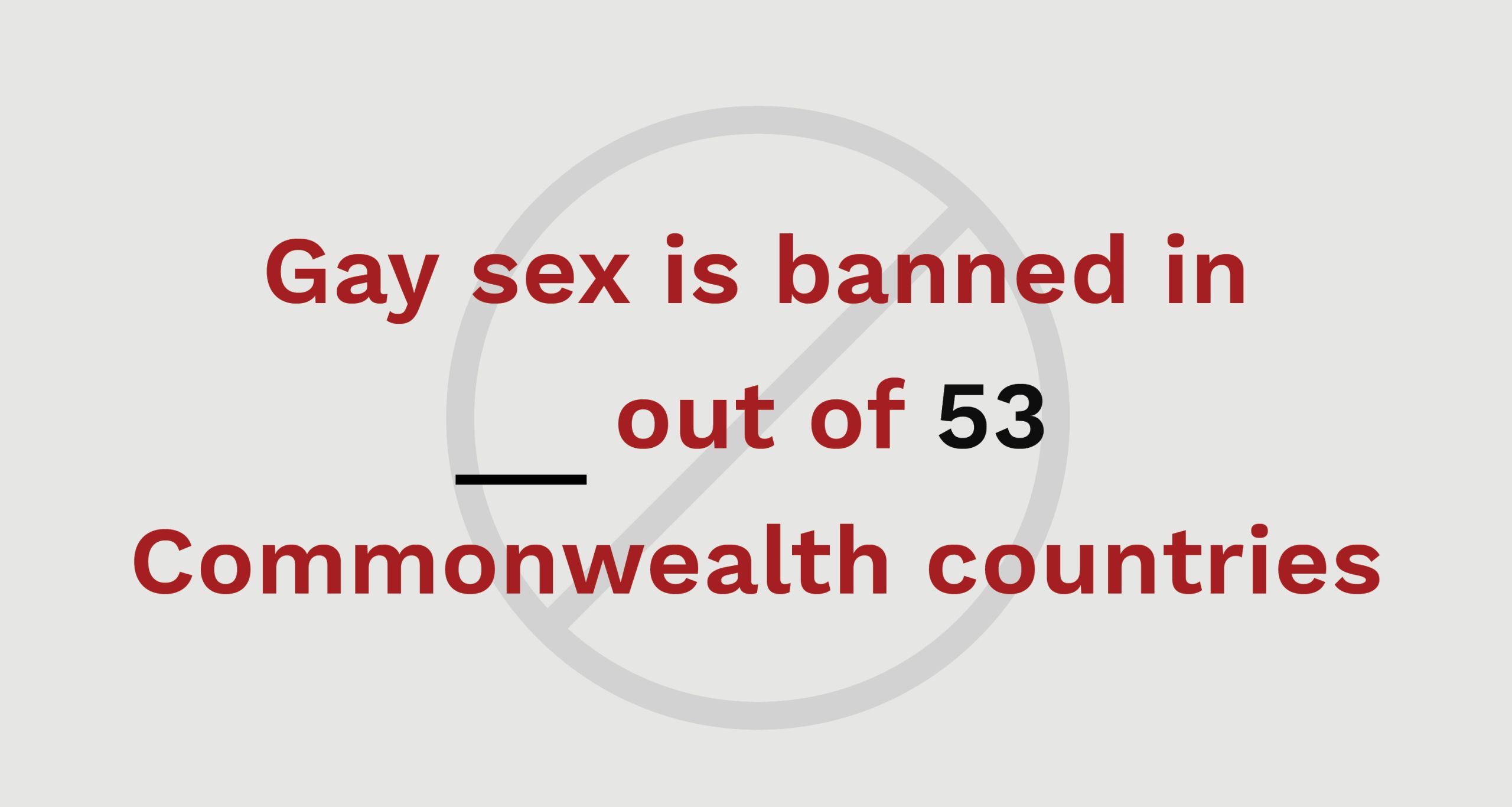
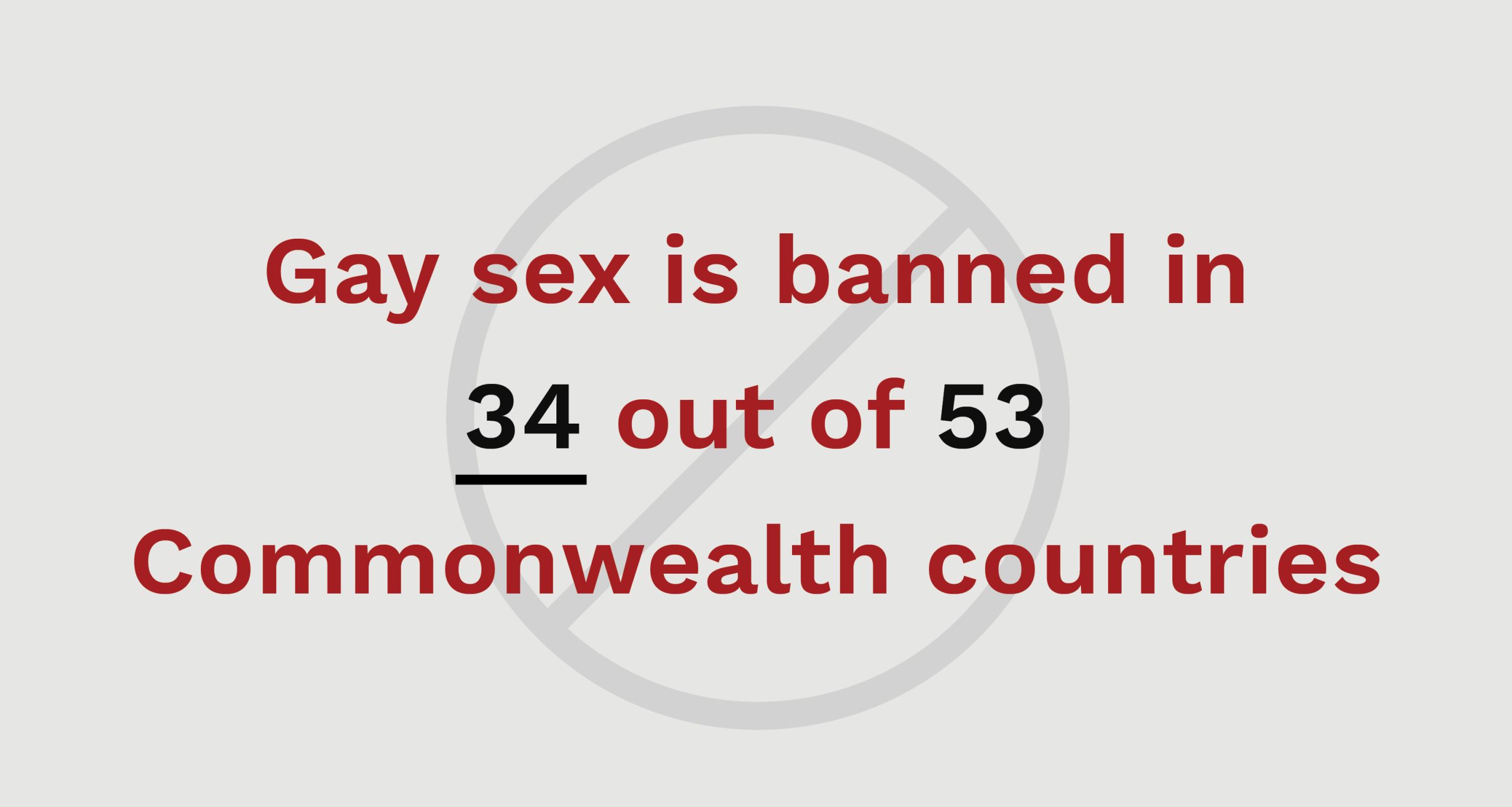
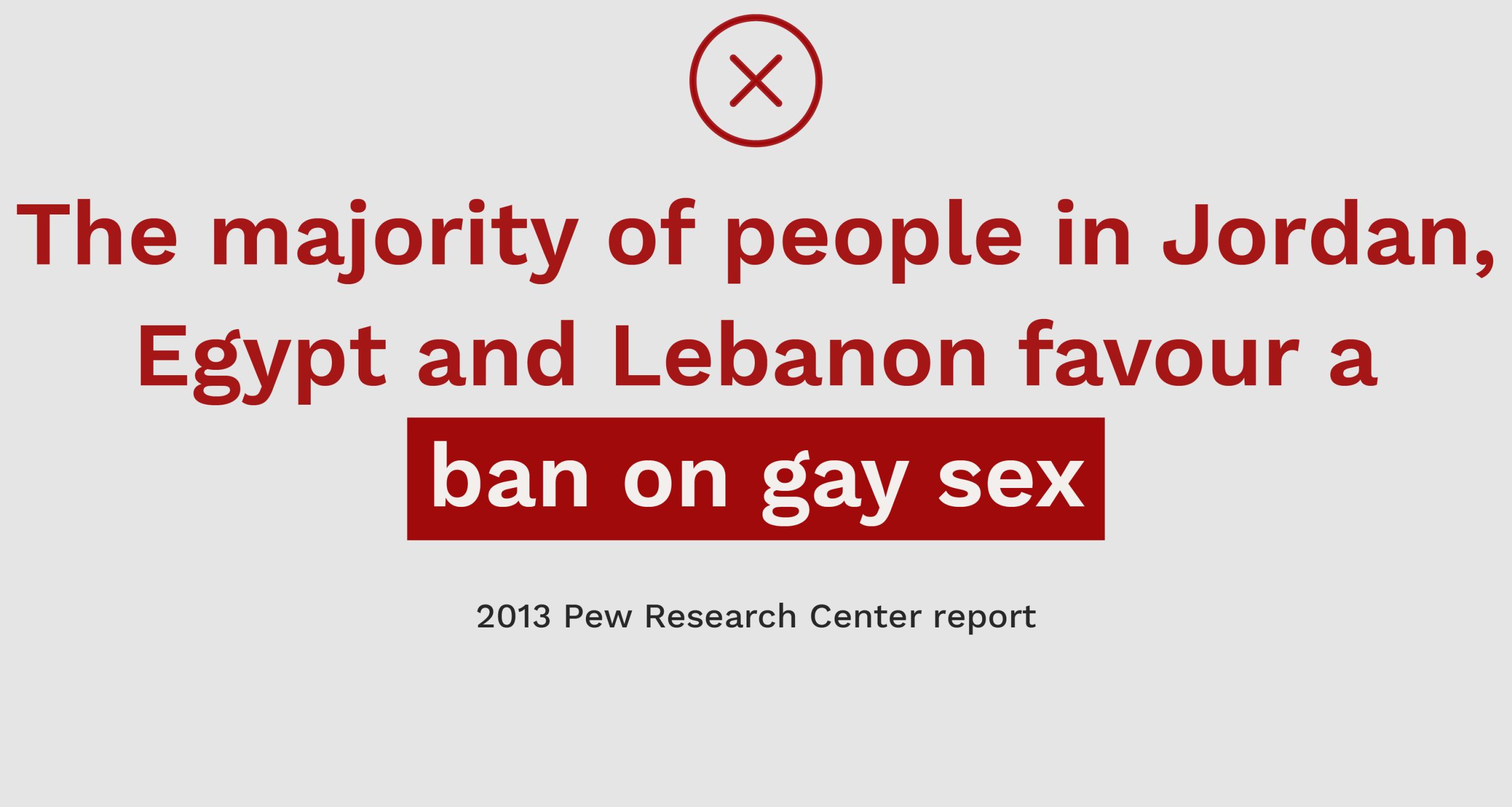
As many countries around the world mark 50 years since the birth of the modern LGBT+ rights movement, the Thomson Reuters Foundation set out to uncover the challenges still faced by lesbian, gay, bisexual and transgender people. Four people from Honduras, Taiwan, Tanzania and Britain revealed the challenges they face on a daily basis.

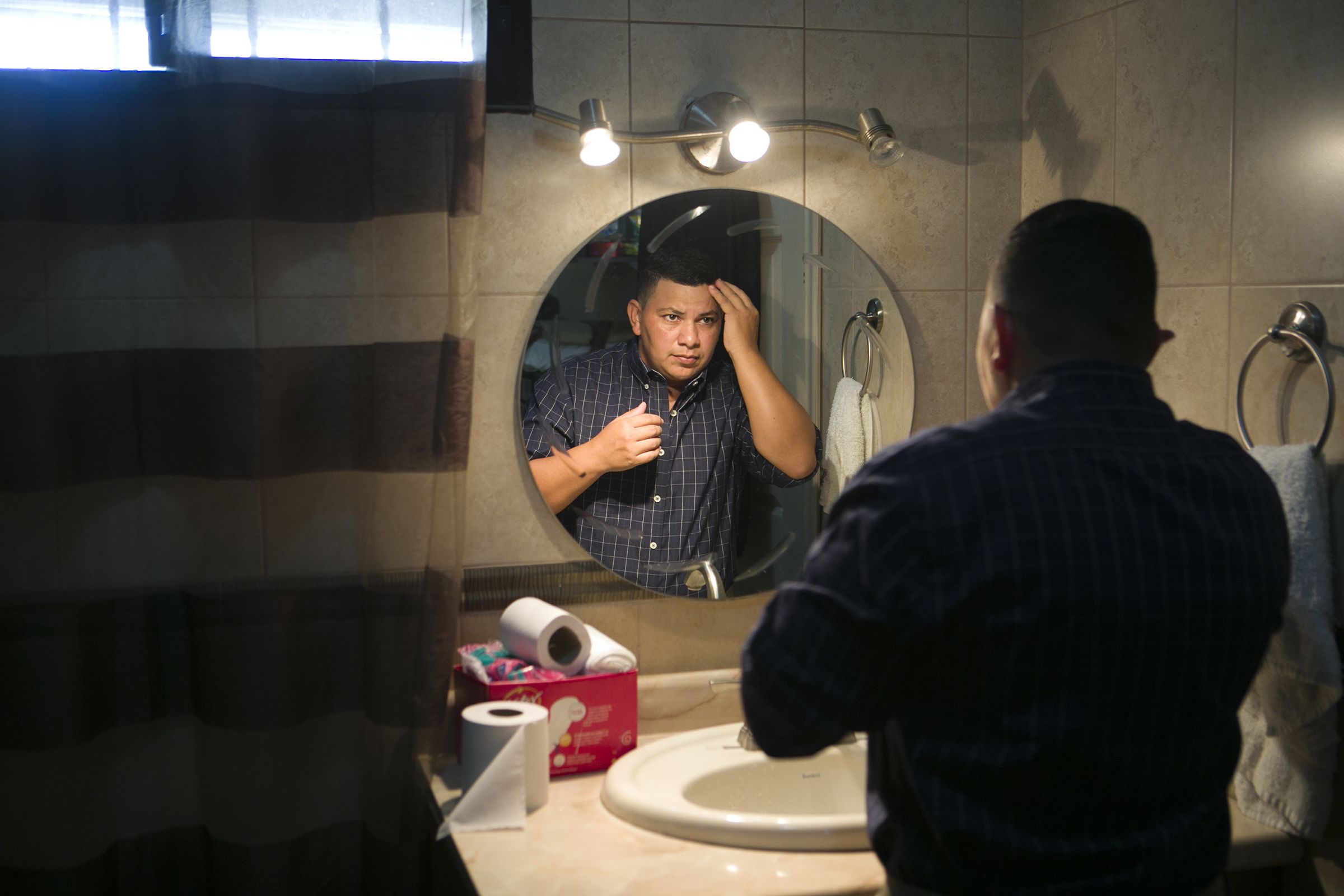
Carlos Eduardo Calix, a transgender man gets ready in his home in San Pedro Sula, Honduras, April 4, 2019. Thomson Reuters Foundation/Nicky Milne
Carlos Eduardo Calix, a transgender man gets ready in his home in San Pedro Sula, Honduras, April 4, 2019. Thomson Reuters Foundation/Nicky Milne
Eduardo, a trans man living in San Pedro Sula, one of the most dangerous cities in the world, faces daily threats of violence and harassment due to his gender identity. Living with his partner, he has been unable to find employment as his identity card still states he is female. Eduardo works informally, helping LGBT+ people in the local town and rural areas.


Lesbian mother Jovi Wu (R) plays with her daughter Allison Wu in a gaming parlour in Zhongli District, Taoyuan City, Taiwan, May 4, 2019. Thomson Reuters Foundation/Shanshan Chen
Lesbian mother Jovi Wu (R) plays with her daughter Allison Wu in a gaming parlour in Zhongli District, Taoyuan City, Taiwan, May 4, 2019. Thomson Reuters Foundation/Shanshan Chen
Jovi and Mindy live with their daughter Allison, conceived via a sperm donor in Thailand. But under Taiwanese law, only Jovi, as the biological mother is recognised as the parent – and even though same-sex marriage was legalised in May, Jovi and Mindy are still fighting for equal adoption rights.

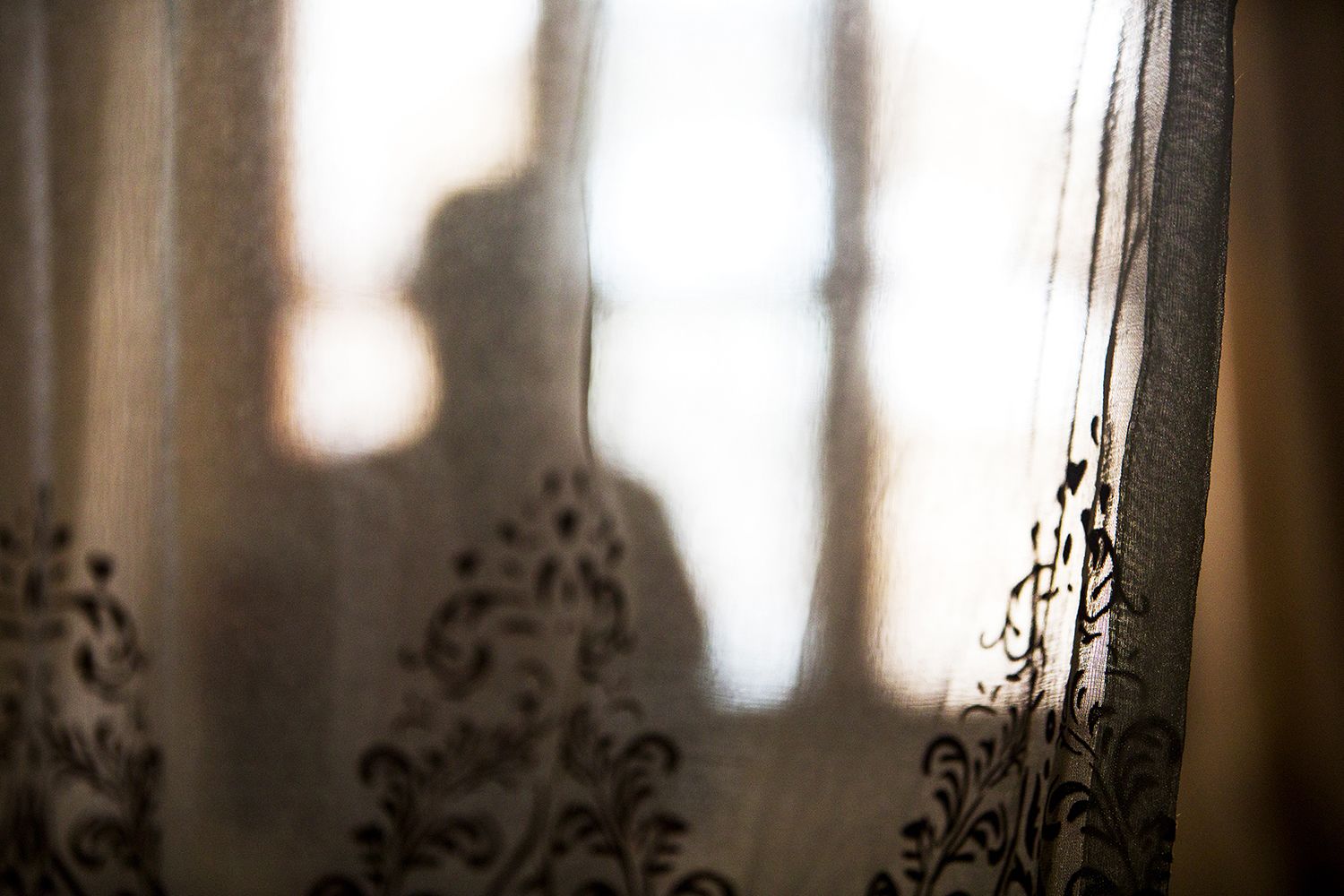
Amani (not his real name) is photographed in silhouette in a safe house where he works to help the local LGBT+ community in Tanzania, where being gay may bring a prison sentence of up to 30 years, October 20, 2018. Thomson Reuters Foundation/Nicky Milne
Amani (not his real name) is photographed in silhouette in a safe house where he works to help the local LGBT+ community in Tanzania, where being gay may bring a prison sentence of up to 30 years, October 20, 2018. Thomson Reuters Foundation/Nicky Milne
Amani said he was living in fear of his life in Tanzania. Last November, the regional commissioner of the country's largest city, Dar es Salaam, announced a crackdown on "suspected homosexuals" living in the area, provoking a global outcry. His organisation is still under investigation by the police.

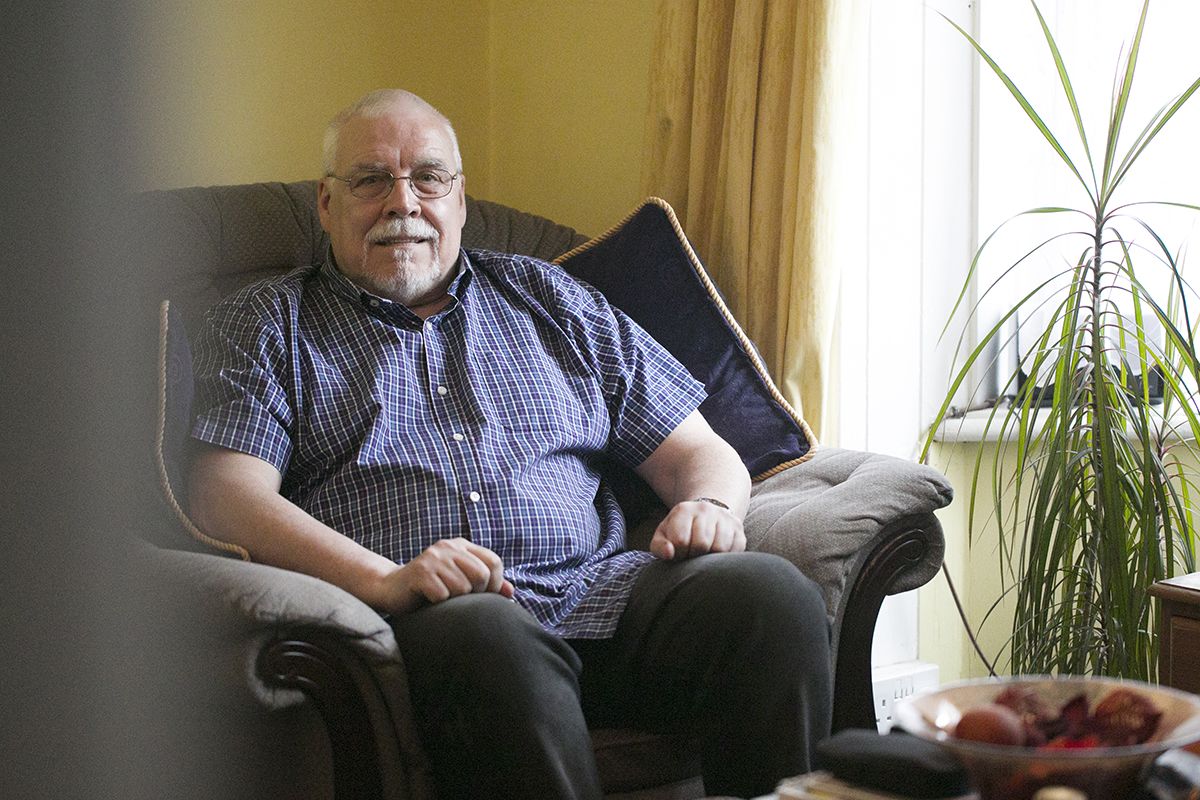
Joe Ousalice poses for a portrait in his home in Southampton, England, May 29, 2019. Thomson Reuters Foundation/Nicky Milne
Joe Ousalice poses for a portrait in his home in Southampton, England, May 29, 2019. Thomson Reuters Foundation/Nicky Milne
Joe Ousalice, a bisexual radio operator who served in the Falklands, Northern Ireland and the Middle East, had his Long Service and Good Conduct medals removed after being dismissed from the British navy in 1993 for “conduct prejudicial to good order and naval discipline”. Ousalice is now suing the British Ministry of Defence to regain his medals.
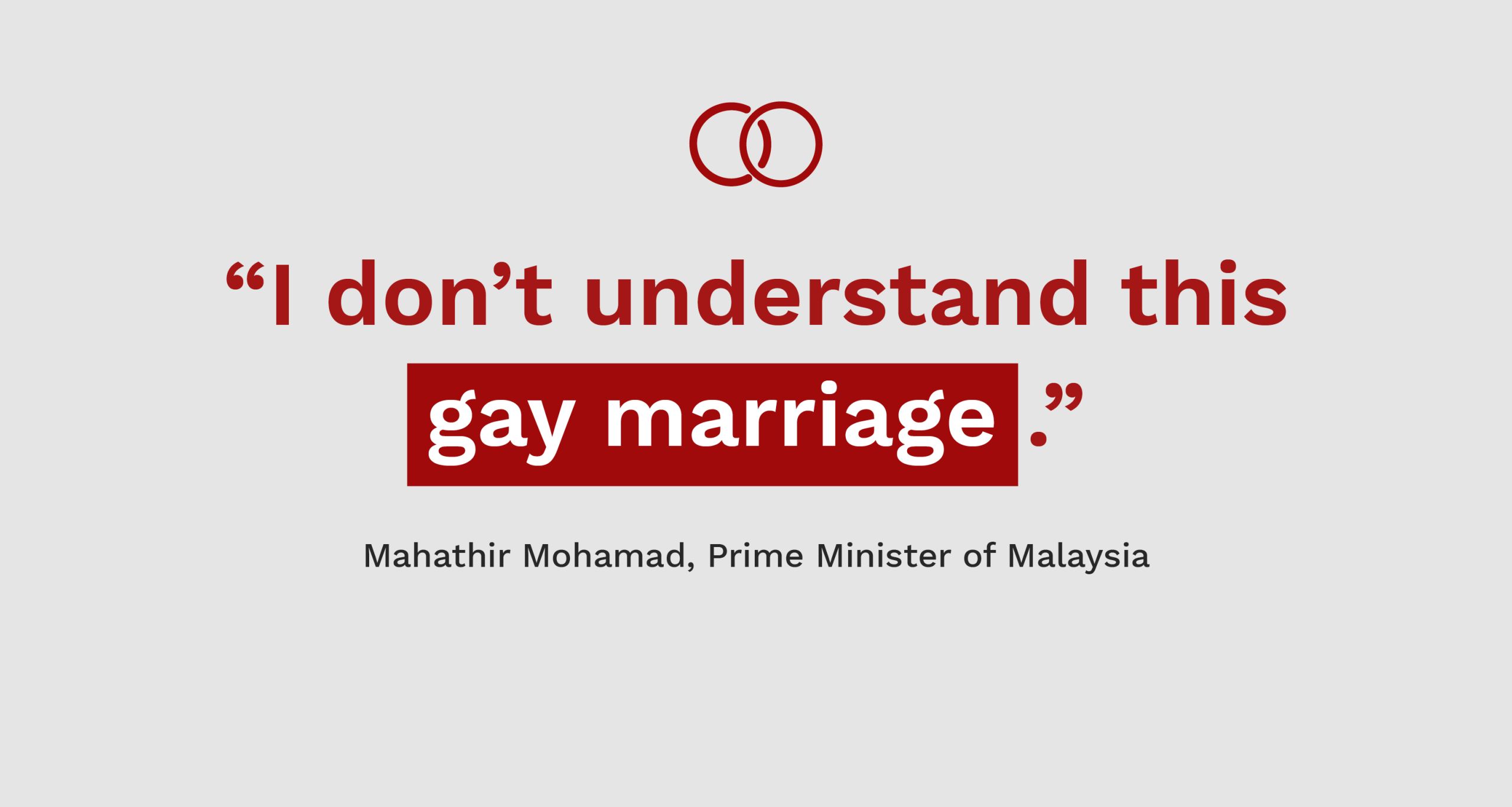
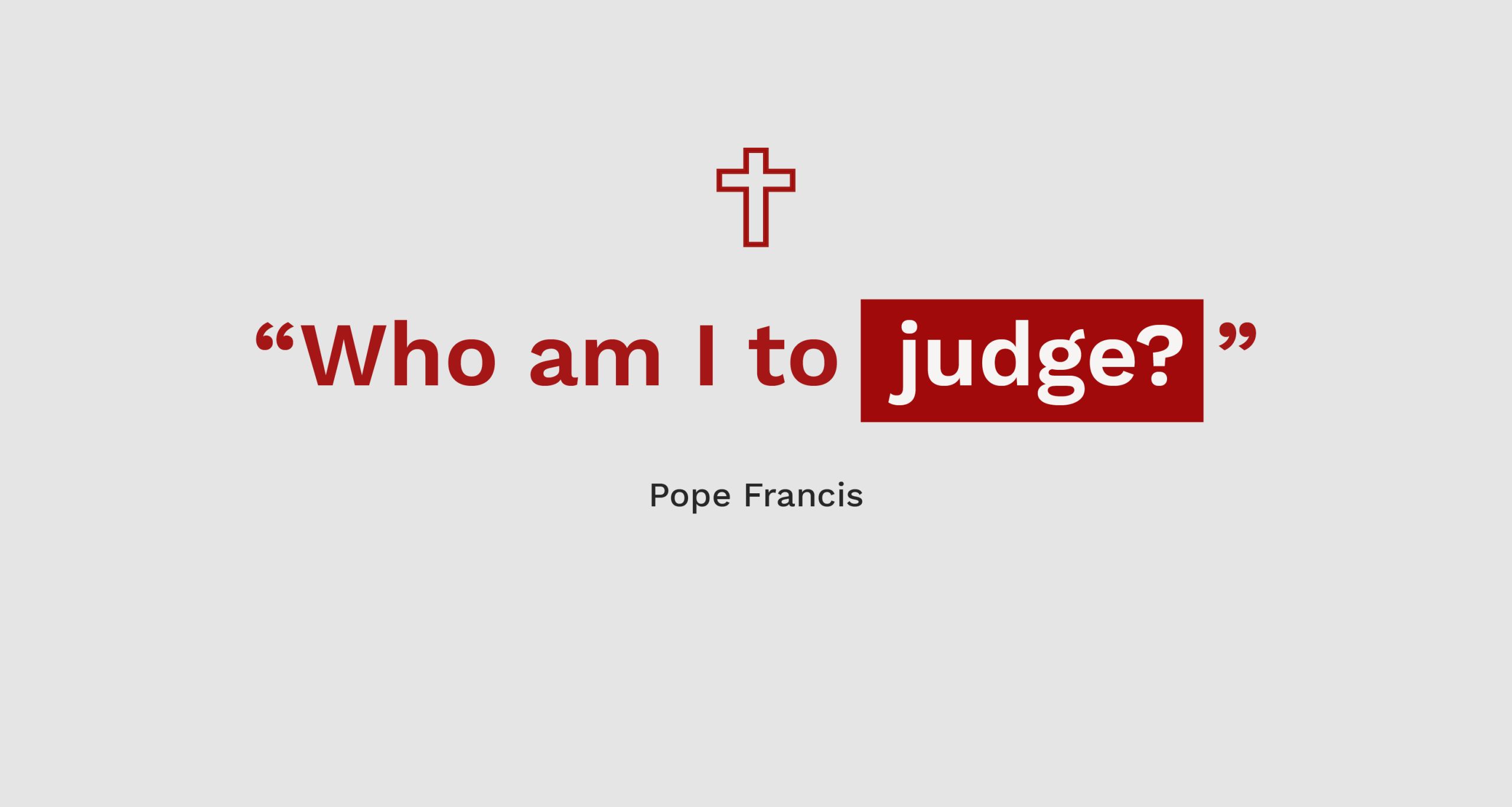
Each continent poses unique challenges for LGBT+ citizens.
In Europe, gay sex has been decriminalised across the continent and 28 nations out of 44 allow some form of same-sex marriage or civil unions.
The frontline has now moved to recognition of transgender and intersex issues, said Paradis of ILGA-Europe.
"Those countries that continue to do really well are those that ... clicked quite some time ago that the agenda was more than marriage equality," Paradis said.
Asia has shown signs of change. India legalised gay sex last year and this month a Hong Kong court ruled the husband of a gay civil servant deserved the same benefits as straight colleagues.
Yet flashpoints remain, such as in Malaysia and Indonesia, where cultural conservatism and a religious backlash against same-sex relations influences policymakers, said Suki Chung, an LGBT+ campaigner at Amnesty International in Hong Kong.
"I don't understand this gay marriage," Malaysia Prime Minister Mahathir Mohamad recently told the Cambridge Union, the debating society of the British university. "Marriage is about producing children. Gay marriage, do they get children?"
South Africa is the only country in Africa to allow same-sex marriage, with many nations resistant to what some politicians and church leaders call the "western disease" of homosexuality.
Resistance to homosexuality remains firm in the Catholic Church although Pope Francis famously said: "Who am I to judge?"
The Thomson Reuters Foundation focused on four stories and four continents to look at where next for LGBT+ lives.
Africa
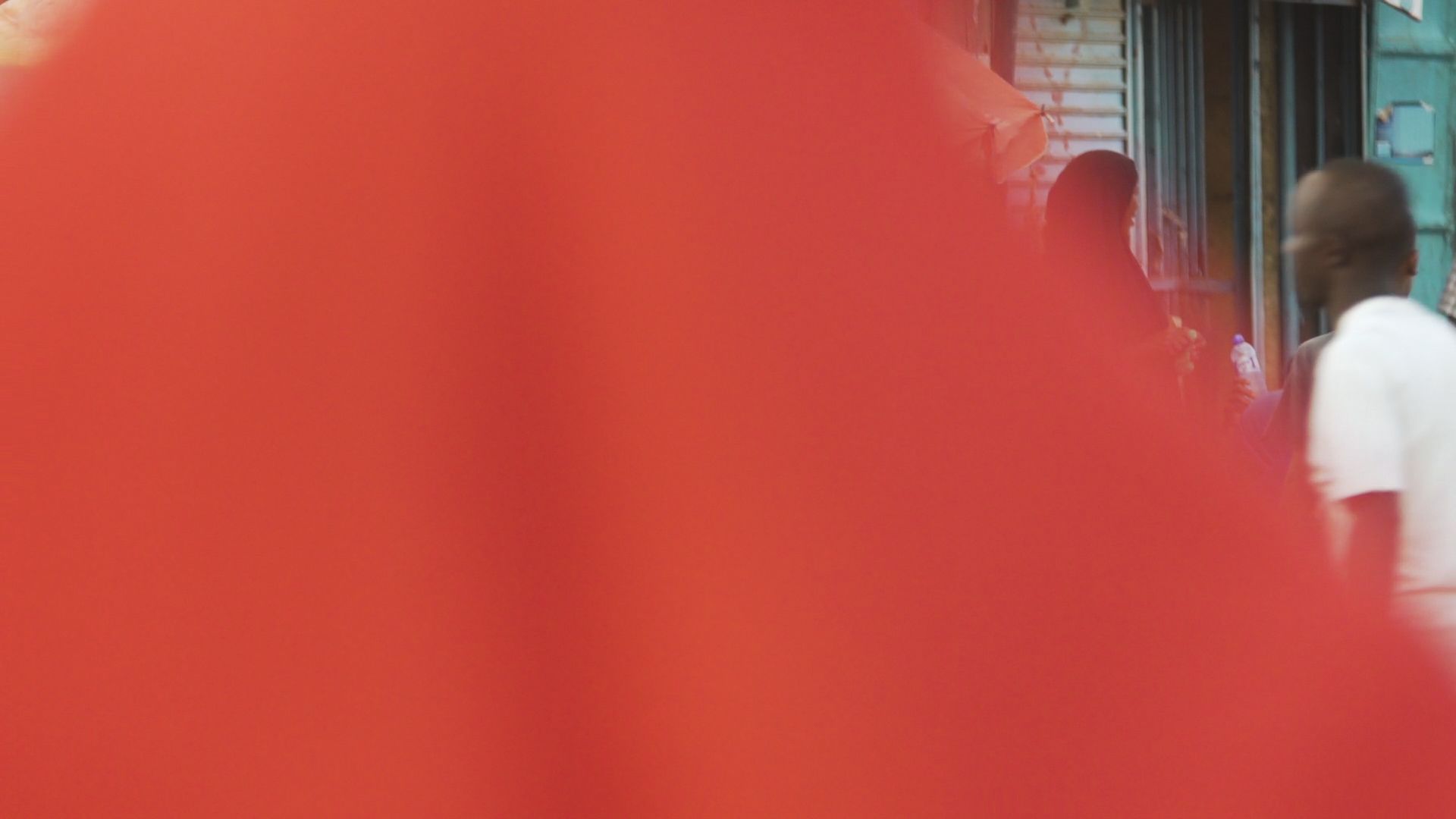
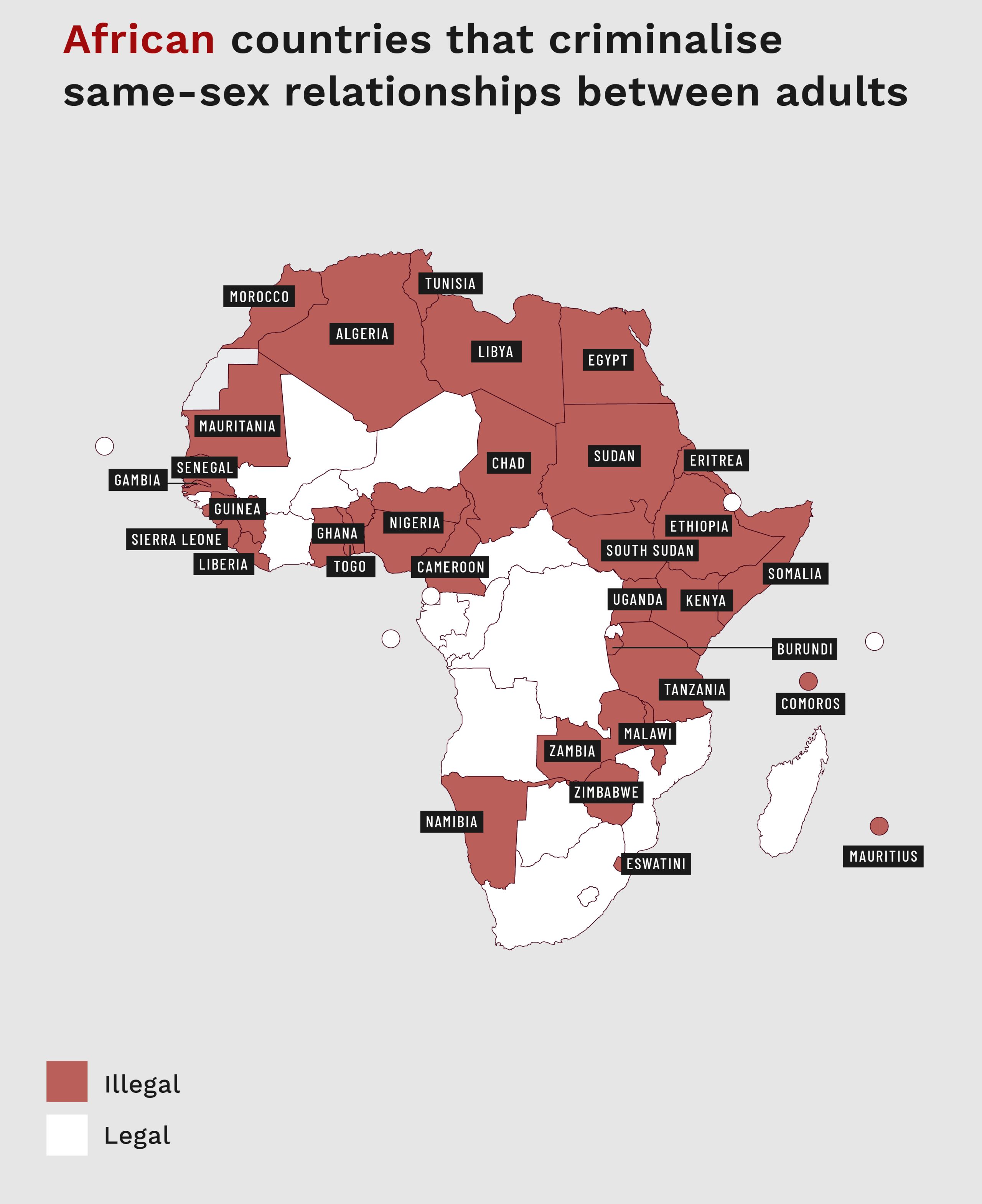
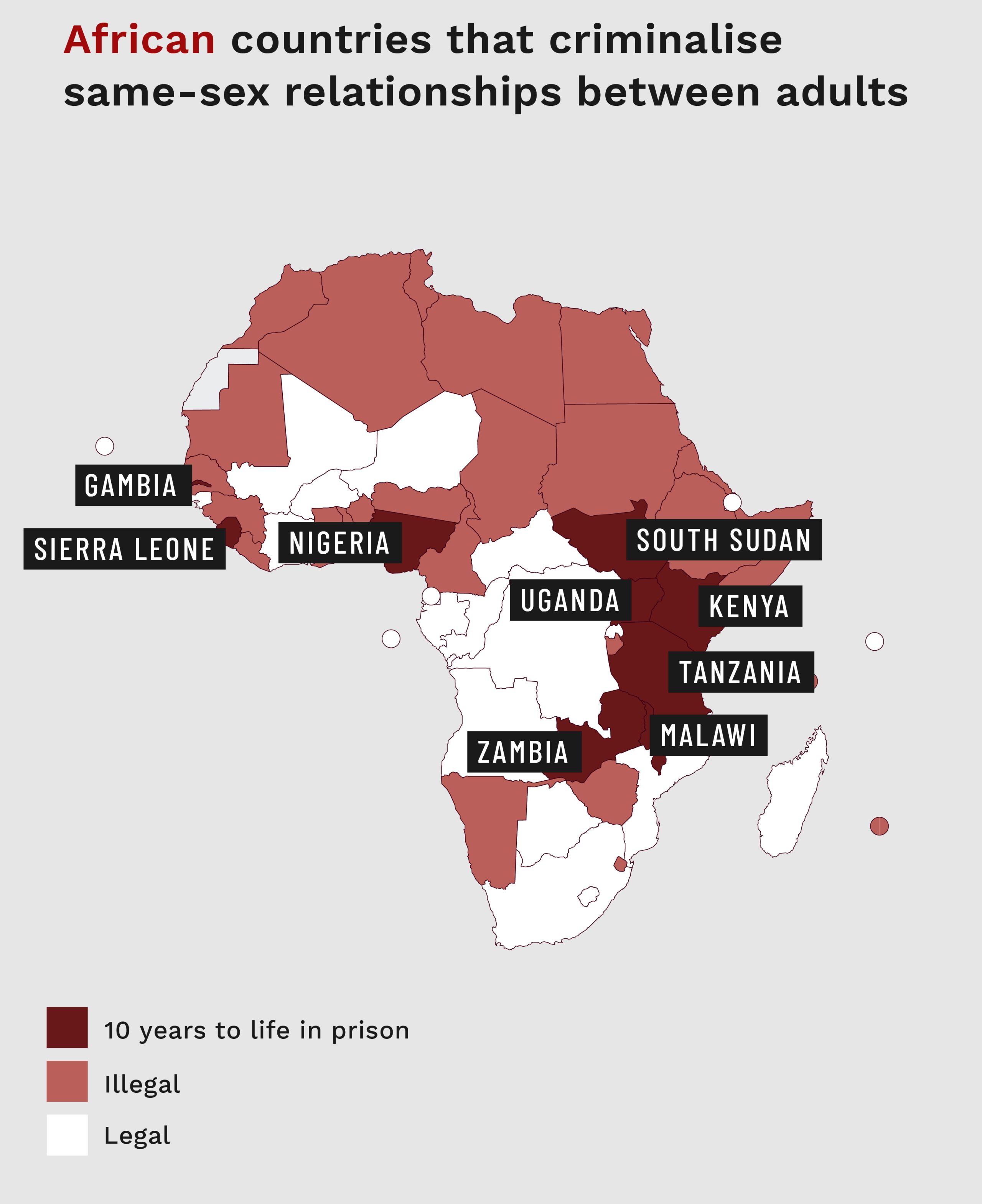
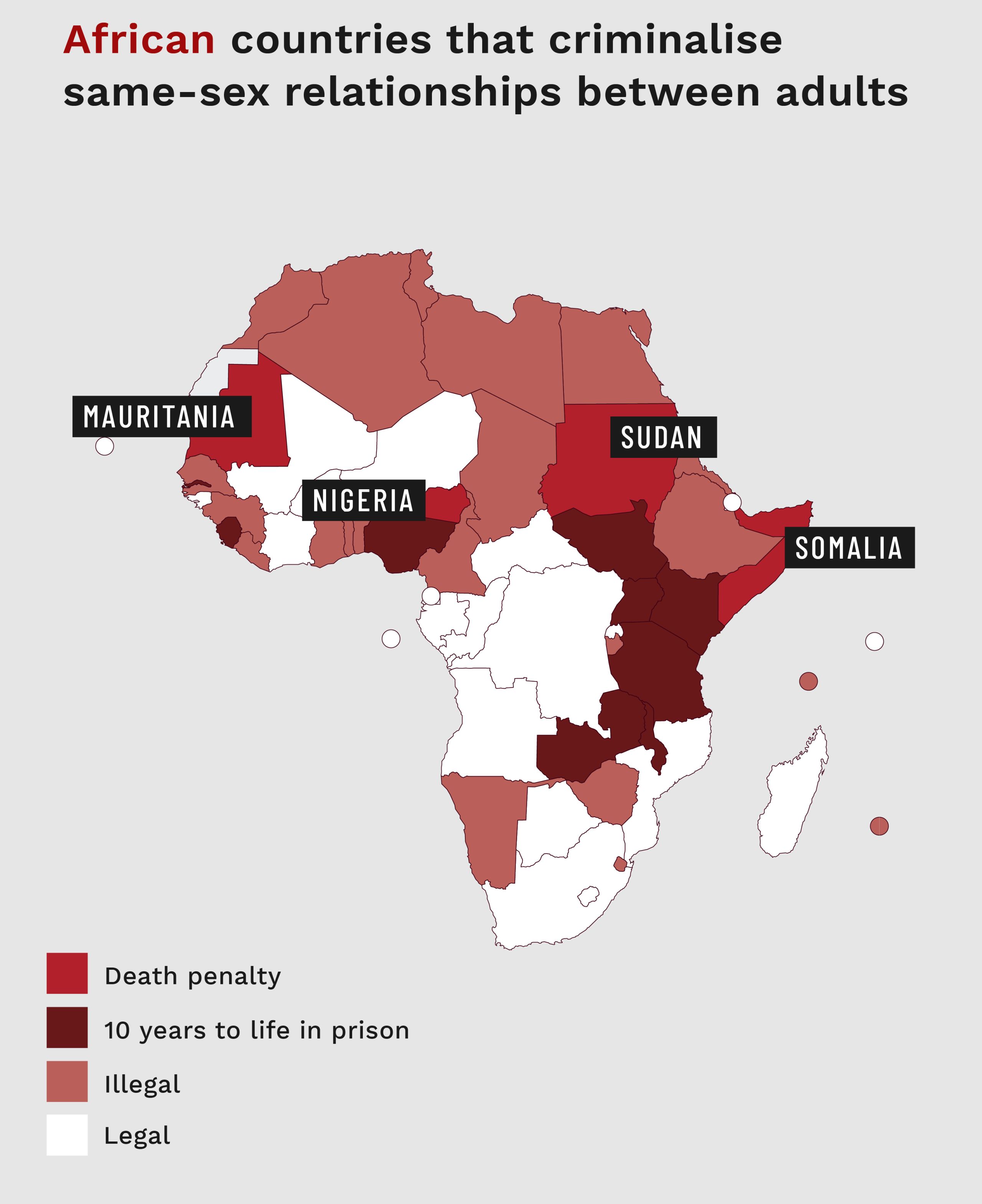
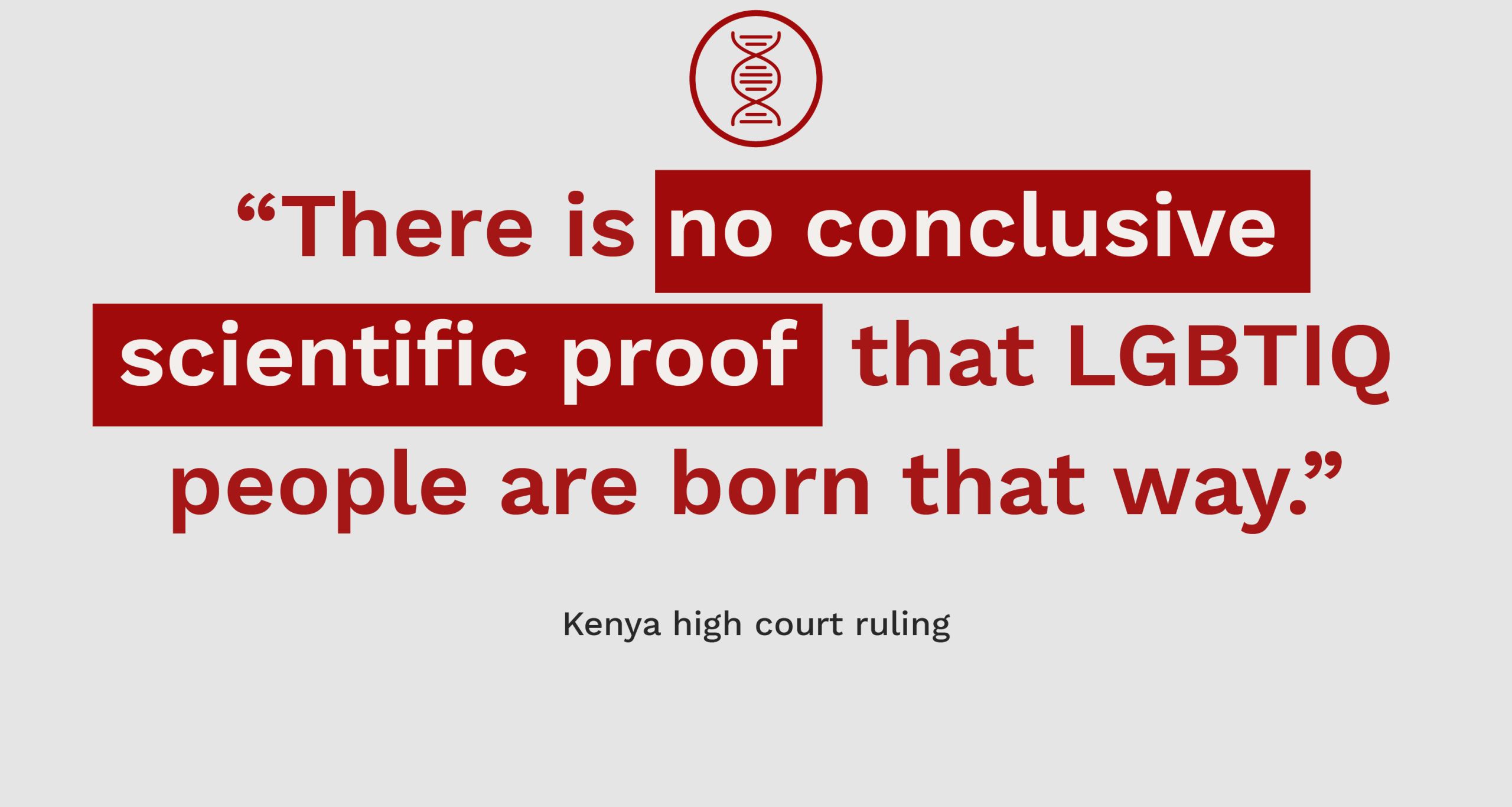
Fourteen years in jail in Kenya; the death penalty in Sudan and parts of Somalia and Nigeria: prosecutions for same-sex relations in Africa carry some of the harshest possible sentences, a hangover from previous colonial laws.
Expectations that the cultural conservatism in many African nations might ease over time rose following the recent decision by Botswana to decriminalise same-sex relations.
But the high court ruling brought mixed emotions for Dumiso Gatsha, a part-time PhD law candidate and a volunteer at Success Capital Organisation, which supports LGBT+ youth in the country.
"As judgment was delivered, I fought back my feelings, remembering the many instances of passive aggression, lost opportunities and stares I'd had to endure for being who I am," he said.
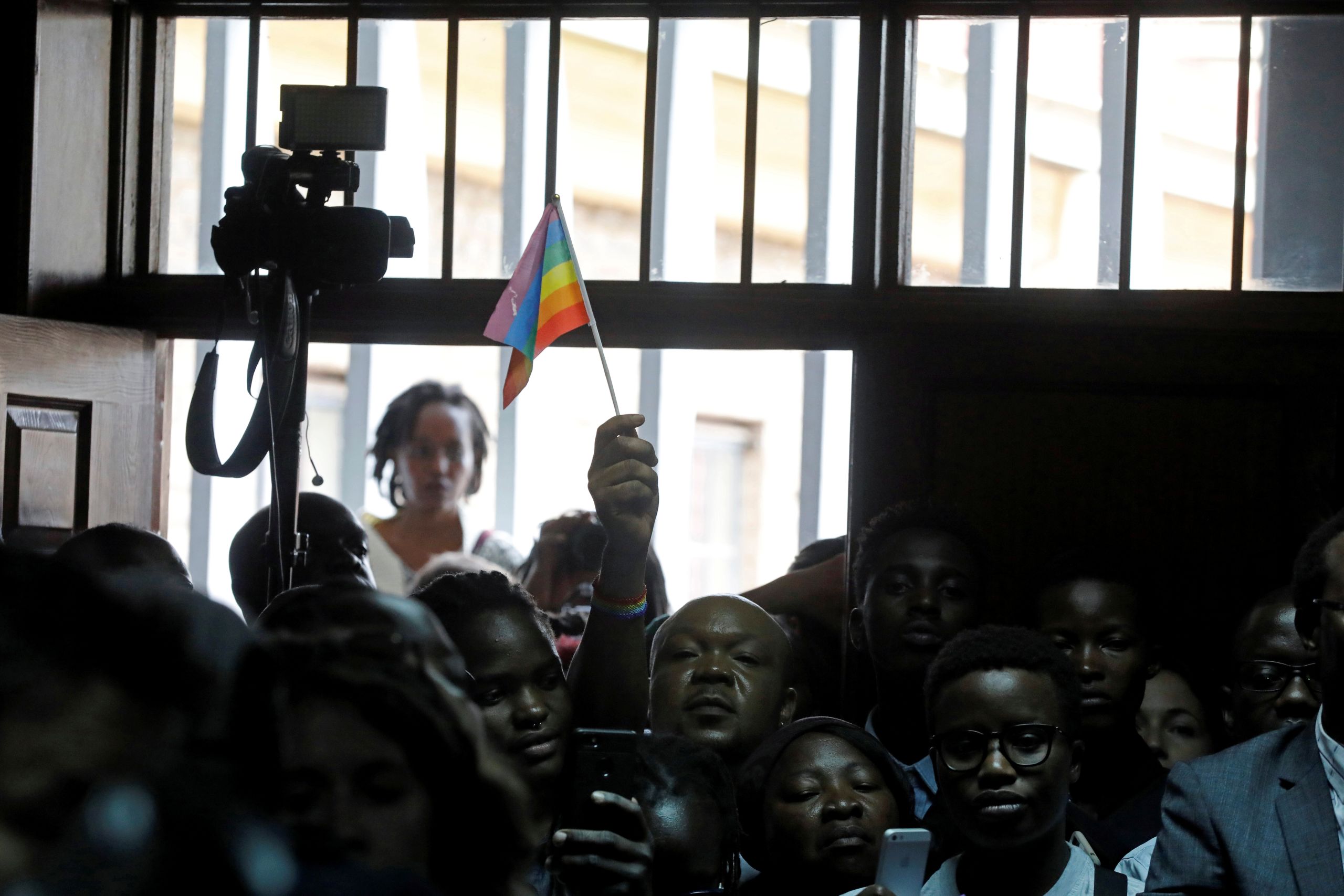
An LGBT+ activist holds the rainbow flag during a ruling when Kenya's high court upheld a law banning gay sex, at the Milimani high Court in Nairobi, Kenya, May 24, 2019. REUTERS/Baz Ratner
An LGBT+ activist holds the rainbow flag during a ruling when Kenya's high court upheld a law banning gay sex, at the Milimani high Court in Nairobi, Kenya, May 24, 2019. REUTERS/Baz Ratner
Kenya's move to uphold the country's gay sex ban also tempered hopes of growing liberalisation across the continent.
In their ruling, the high court judges found that "the expert evidence was unanimous ... there is no conclusive scientific proof that LGBTIQ people are born that way".
Beyond the headlines, the picture was mixed. In Guinea Bissau, on the west coast, the "Big Mamas", a group of gay men and trans women, was widely accepted by the local community.
In Tunisia, gay sex remains punishable by three years in jail, but LGBT+ activists recently won a four-year court battle thwarting the government's attempts to close Shams, the country's leading LGBT+ organisation.
Further south, South Africa remains the exception, having seen equality for all written into its constitution.
Lesbians and bisexual women face particular issues. Reports of corrective rape in countries such as Cameroon and Senegal are common, according to activists in the region.
Almost 600 homophobic attacks and violations were reported in Cameroon in 2017, according to Humanity First Cameroon, an LGBT+ umbrella organisation, with one in five lesbians and one in 10 gay men reporting that they had been raped.
Zimbabwe faces its own internal political and economic problems following the ouster of former dictator Robert Mugabe in 2017. Homeless boys have taken to selling themselves to survive on the streets of Bulawayo, the country's second city.
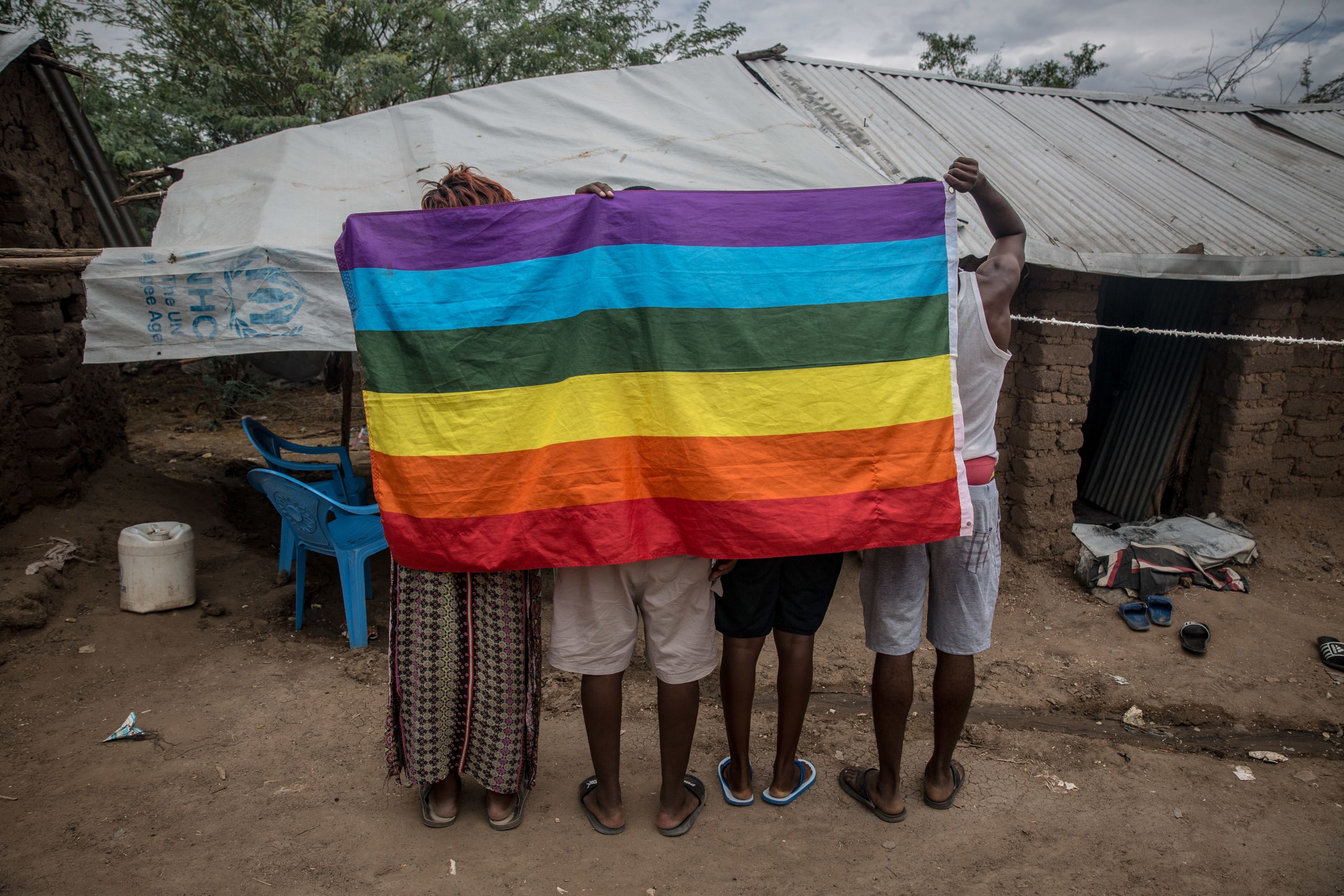
Ugandan LGBT refugees pose in a protected area of Kakuma refugee camp in northwest Kenya, October 14, 2018. Thomson Reuters Foundation/ Sally Hayden
Ugandan LGBT refugees pose in a protected area of Kakuma refugee camp in northwest Kenya, October 14, 2018. Thomson Reuters Foundation/ Sally Hayden
A refugee crisis on the Kenyan-Ugandan border has been exacerbated by LGBT+ migrants fleeing Uganda where the Ugandan parliament in 2014 passed the Anti-Homosexuality Act, infamously described in the media as the "Kill the Gays Bill".
"The situation in the camp as an LGBT+ refugee is as terrible as you can imagine," said Geoffrey Kasenene, a Ugandan refugee formerly living in the Kakuma Refugee Camp in northwestern Kenya.
Latin America
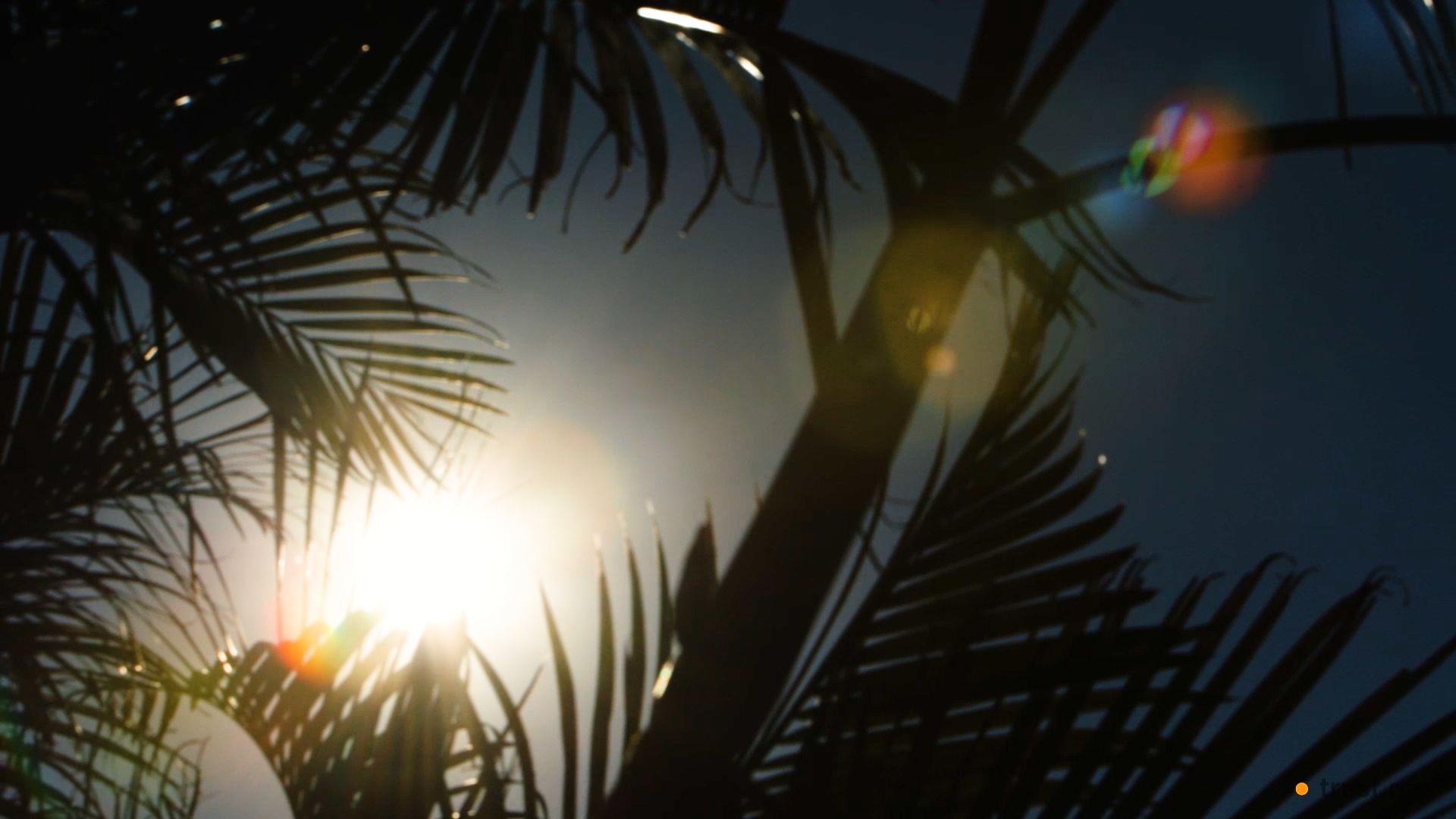
The election last year of Jair Bolsonaro as president of Brazil - where the Catholic Church and the evangelical movement are frequently critical of gay rights - has proved a lightning rod for the region's gay, bisexual and trans community, said congressman David Miranda, a LGBT+ activist.
"He puts a target on the back of all LGBT+ people," he told the Thomson Reuters Foundation.
Bolsonaro once told an interviewer that he would rather his son die in an accident than bring home a male partner.
Earlier this month, Brazil made homophobia and transphobia crimes, a move the president described as "completely wrong". Data agency Trans Murder Monitoring (TMM) estimated at least 369 trans people were murdered worldwide in the 12 months to the end of September last year. Brazil recorded the highest number, with 167 reported killings. Mexico saw at least 71 murders.
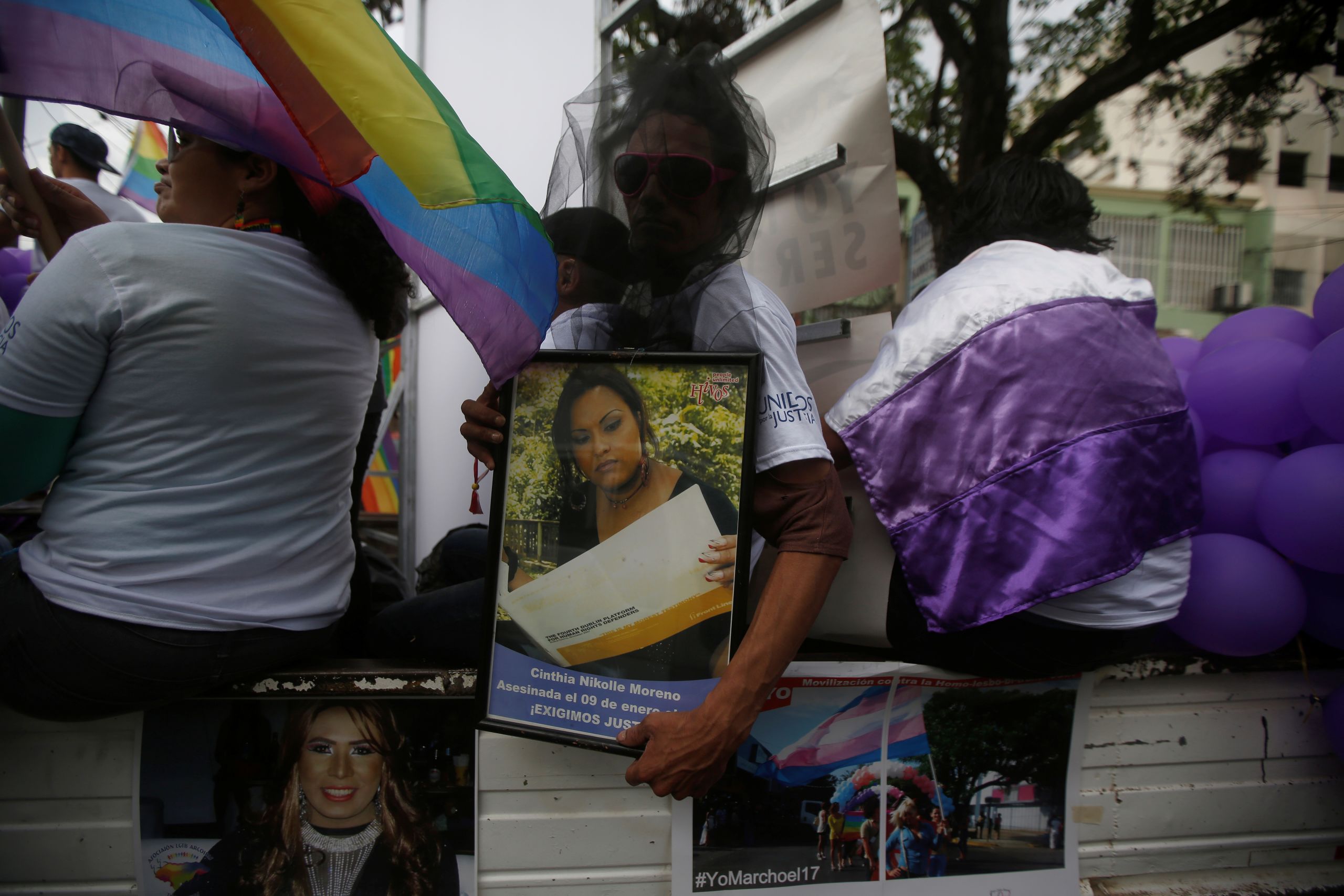
A participant holds a framed photograph of a transgender victim murdered in a hate crime during a march to mark the International Day Against Homophobia, Transphobia and Biphobia in Tegucigalpa, Honduras, May 17, 2018. REUTERS/Jorge Cabrera
A participant holds a framed photograph of a transgender victim murdered in a hate crime during a march to mark the International Day Against Homophobia, Transphobia and Biphobia in Tegucigalpa, Honduras, May 17, 2018. REUTERS/Jorge Cabrera
Globally, the number has ticked higher over the past three years, with 295 murders recorded in 2016 and 325 in 2017. In 2008, there were 148 reported deaths.
Between 2008 and 2018, there were a total of 2,982 deaths, according to TMM, with the overwhelming majority – 2,350 - in Central and South America.
Trans women also report being trafficked in increasing numbers in Brazil, according to LGBT+ rights campaigners in the country.
One 20-year-old woman, who was rescued from traffickers last year, said she had racked up debts to her pimp to pay for industrial-grade silicon to change her body shape.
"I would have to stay working there for years and years to pay back the money," she told the Thomson Reuters Foundation.
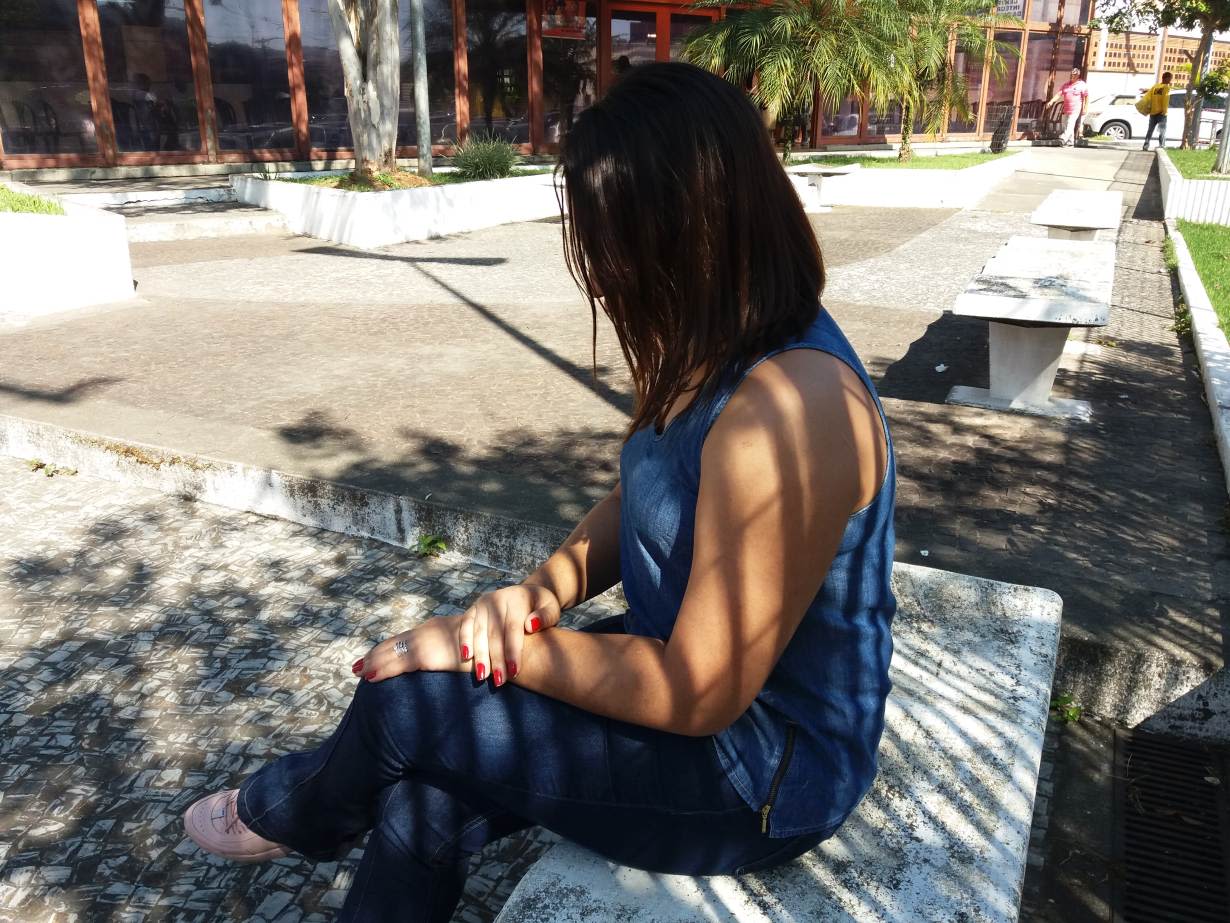
Julia, a trans woman victim of sex trafficking, sits outside a government building in the greater Sao Paulo area, in Brazil,April 30, 2019. Thomson Reuters Foundation/Fabio Teixeira
Julia, a trans woman victim of sex trafficking, sits outside a government building in the greater Sao Paulo area, in Brazil,April 30, 2019. Thomson Reuters Foundation/Fabio Teixeira
Lawmakers in the Mexican province of Yucatan voted against gay marriage in April, despite civil partnerships being legal in the country since 2010.
However, Ecuador's recent decision to legalise gay marriage offers optimism for change in the region, said Diane Rodriguez, president of the Ecuadorian Federation of LGBTI Organizations and the first trans woman elected to Ecuador's National Assembly.
"After a fight of almost 20 years, gay marriage has been achieved. It gives us a guiding light for many other proposals on human rights," she said.
Yet even Ecuador remains a deeply conservative society.
"The vast majority of the Ecuadorian people, through referendum, approved a constitution that ... reserved marriage for heterosexual, male/female couples," Carlos Arsenio Larco, a lawyer for the Life and Family movement, a right-wing Christian group, told local TV channel El Comercio.
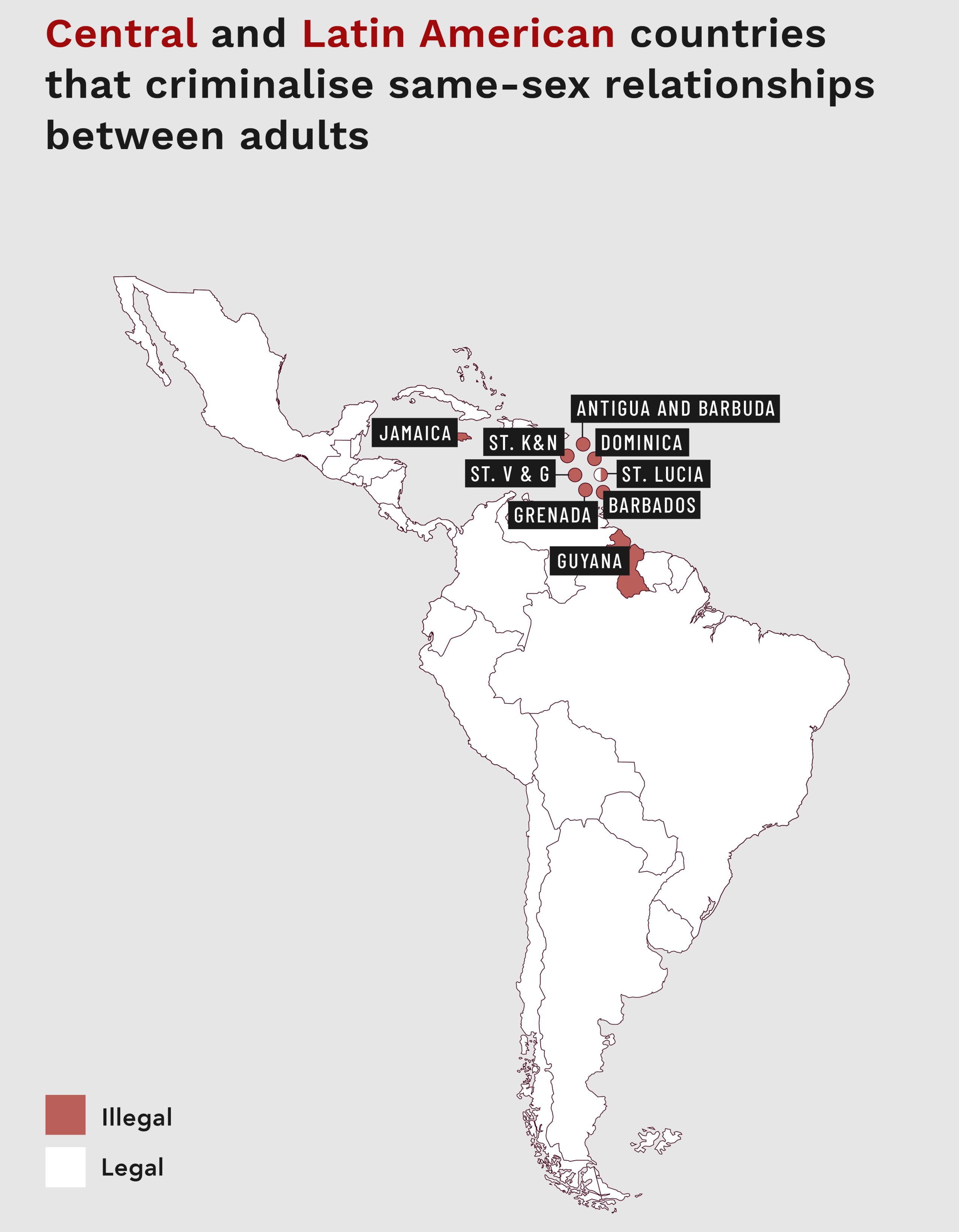
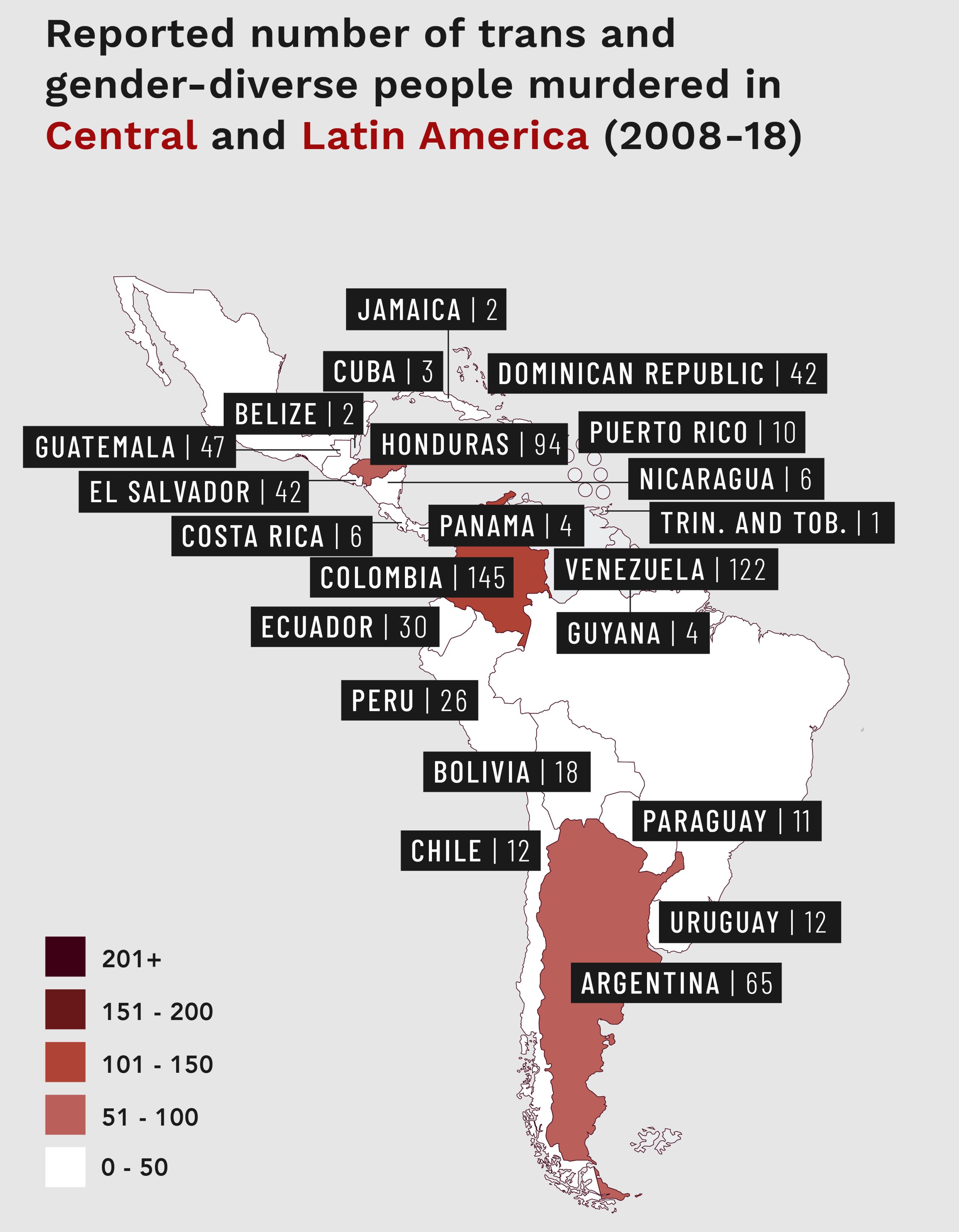
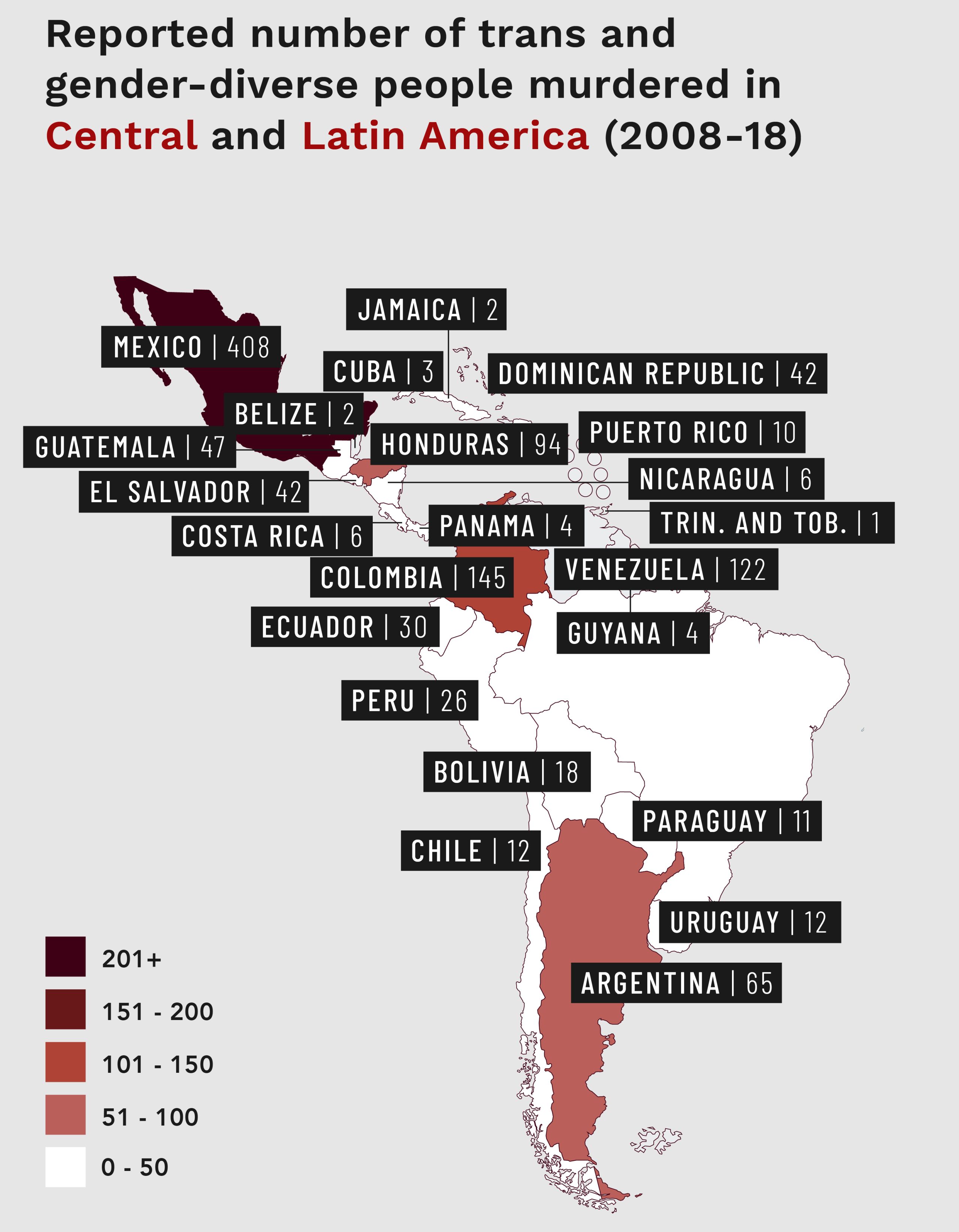
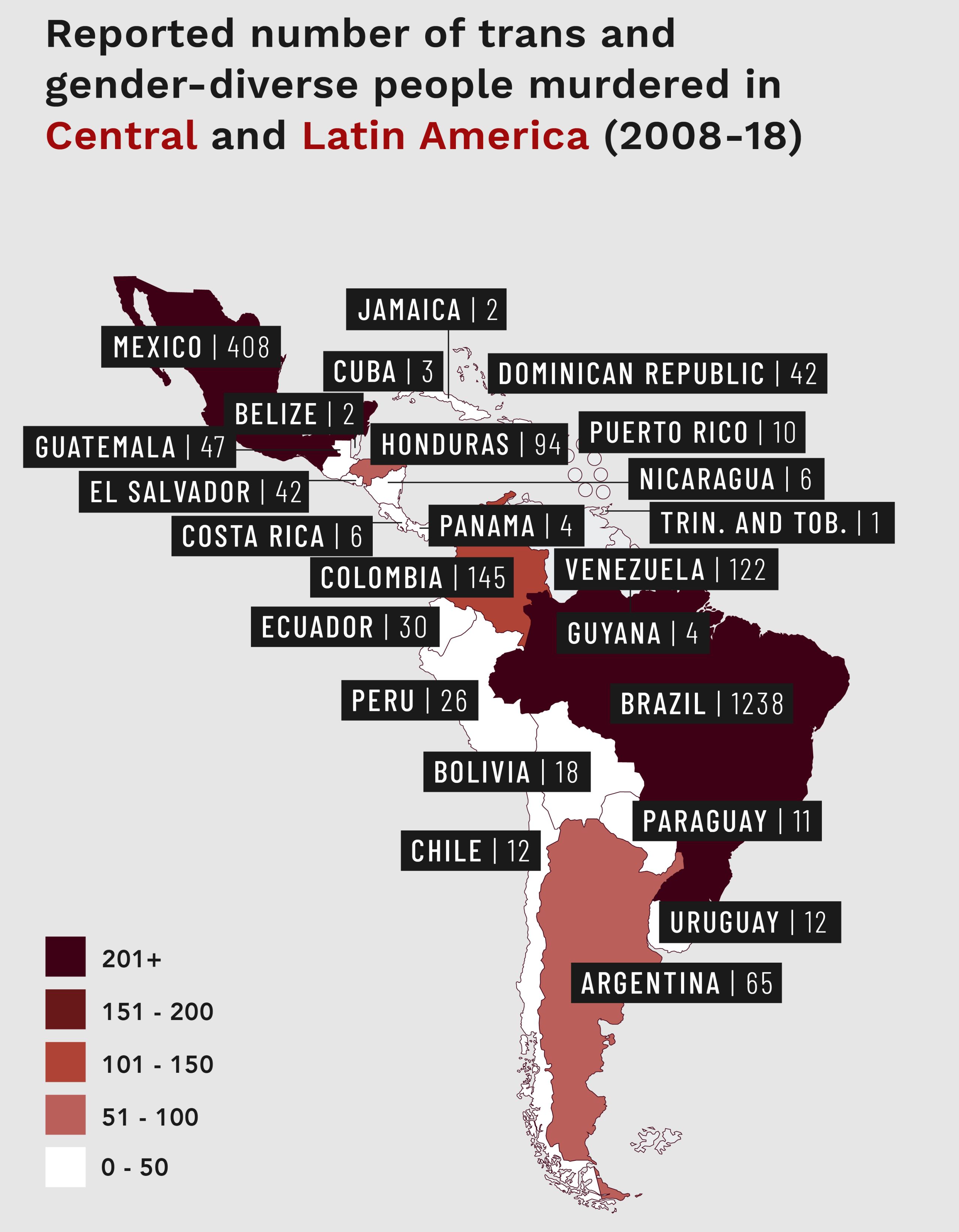
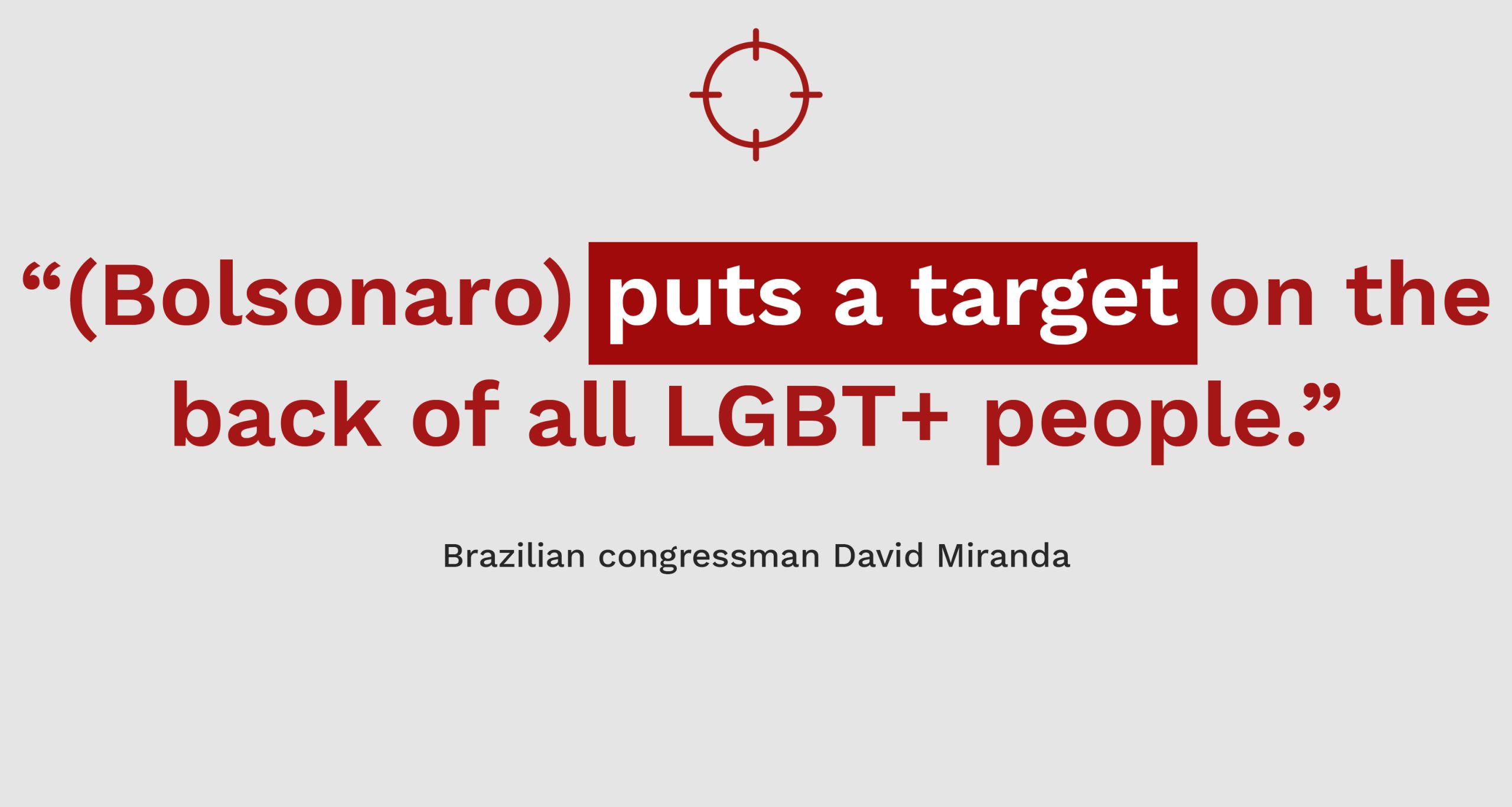
Asia
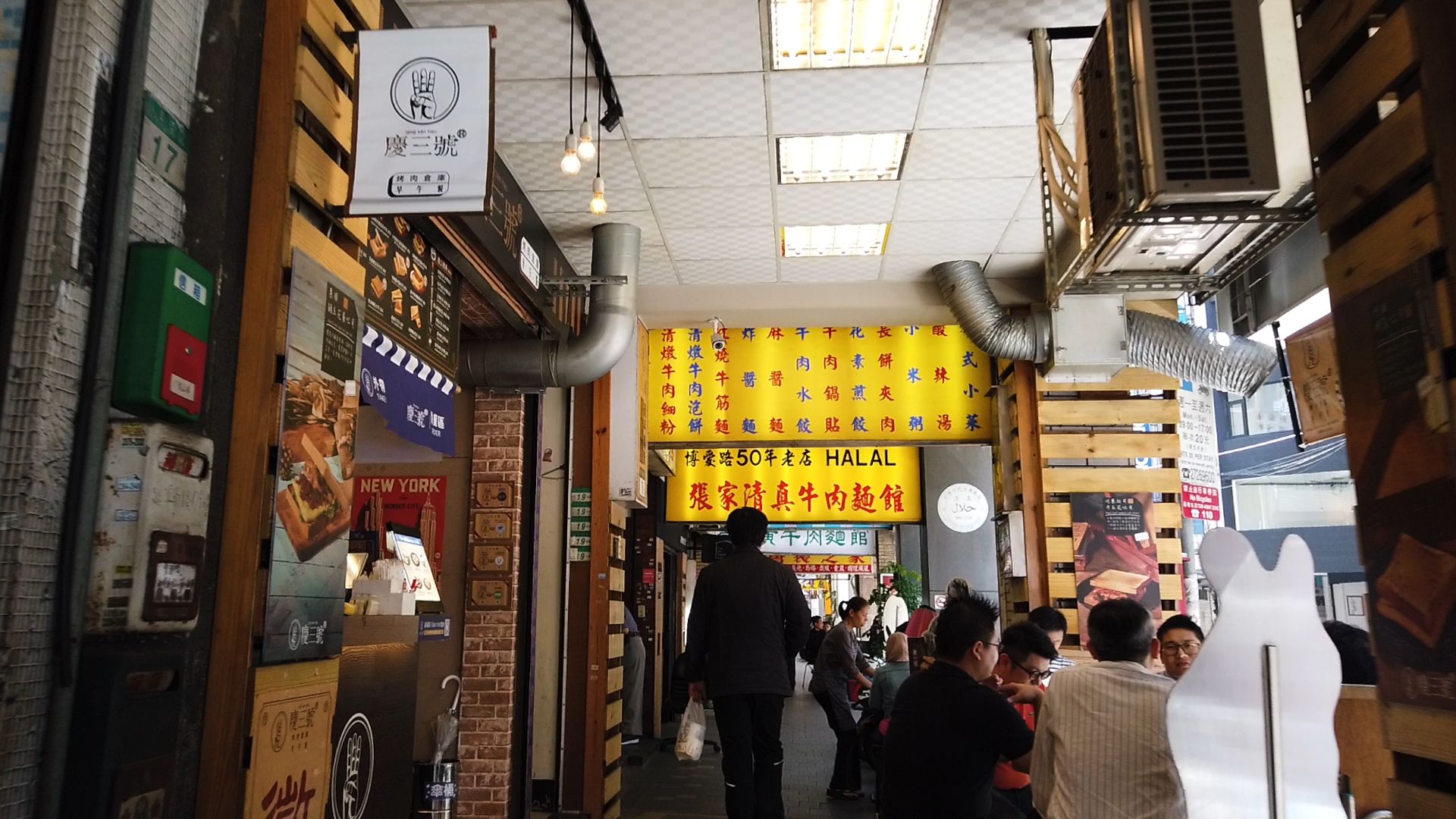

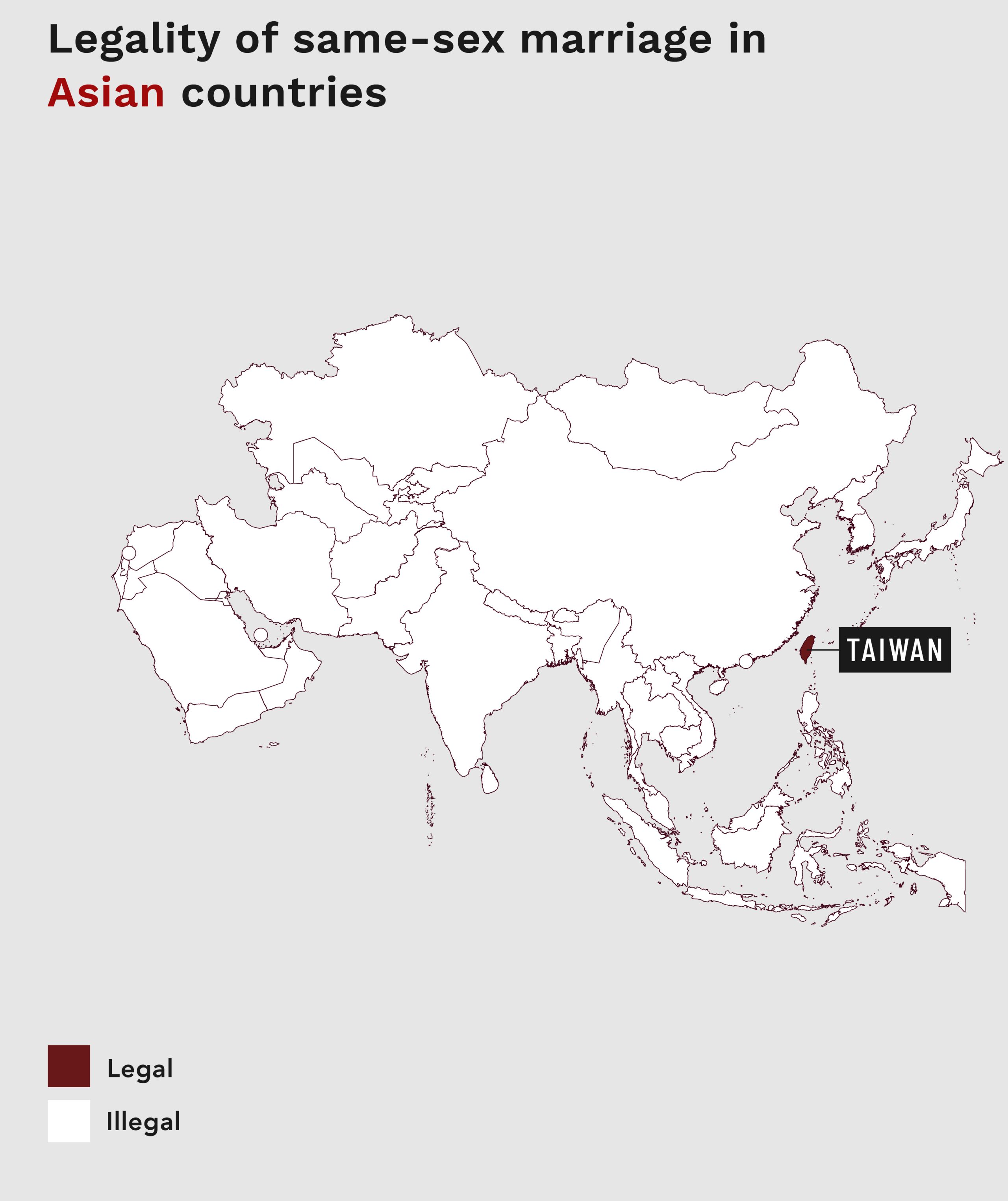
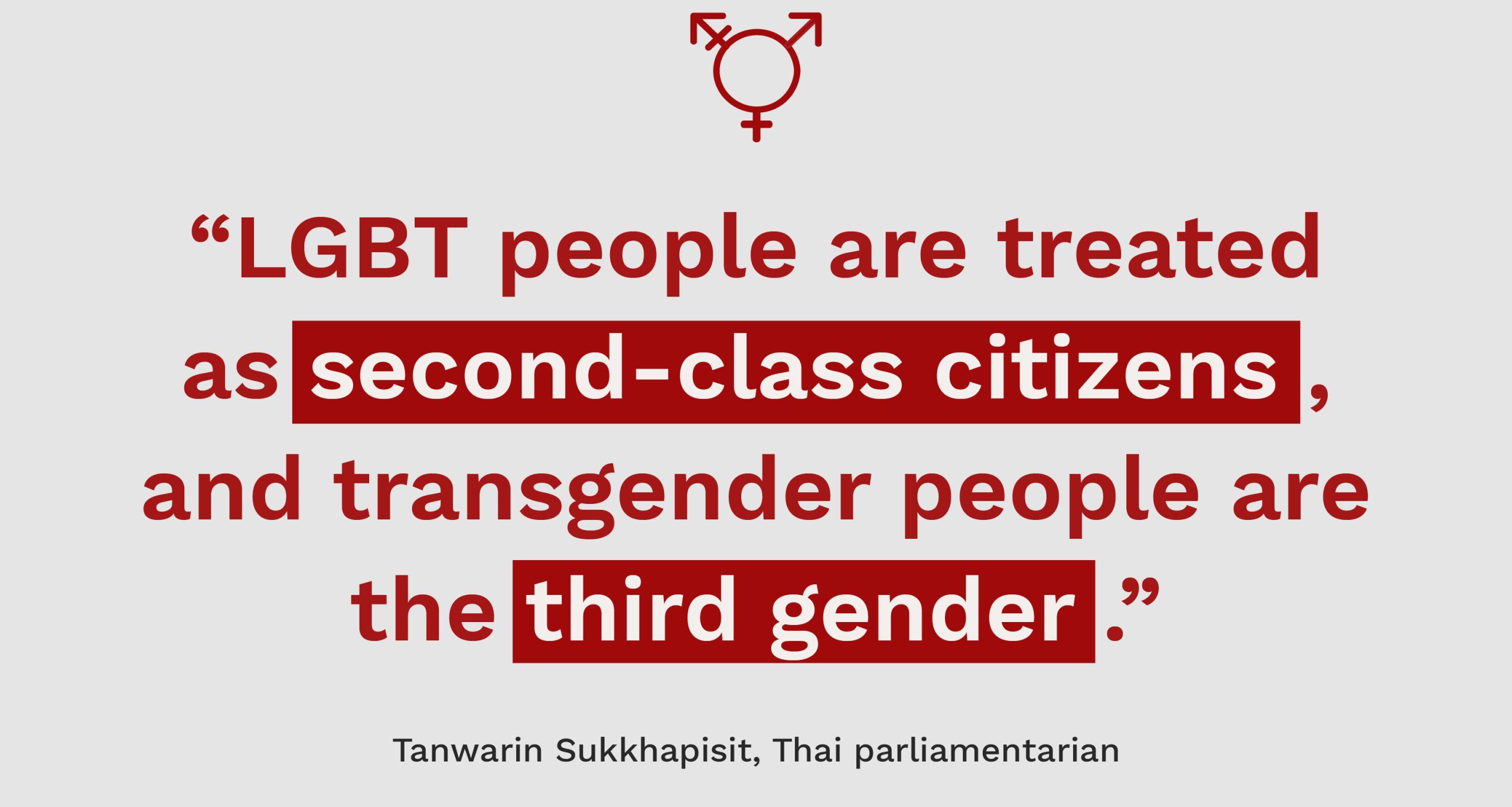
India's move to legalise gay sex in September last year sparked hope among campaigners of change in some of the Muslim-majority nations across the region which retain laws outlawing same-sex relations, including Indonesia and Malaysia.
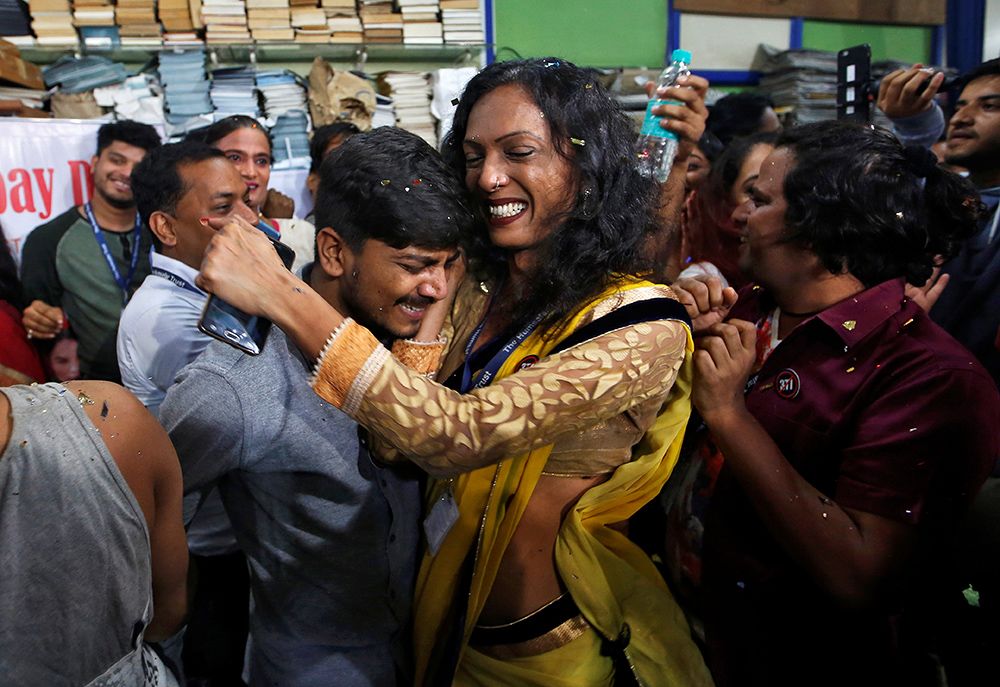
Members of the LGBT+ community celebrate after the Supreme Court's verdict to decriminalise gay sex and revoke Section 377 law at an NGO in Mumbai, India, September 6, 2018. REUTERS/Francis Mascarenhas
Members of the LGBT+ community celebrate after the Supreme Court's verdict to decriminalise gay sex and revoke Section 377 law at an NGO in Mumbai, India, September 6, 2018. REUTERS/Francis Mascarenhas
The past 12 months have proved problematic for LGBT+ rights in the region, said Ryan Silverio, regional coordinator at the ASEAN SOGIE Caucus, which advocates for human rights for sexual and gender minorities throughout Southeast Asia.
"There are indications of regression in many countries and these are spreading widely across the region," he told the Thomson Reuters Foundation.
In March, Brunei announced it would impose the death penalty by stoning for gay sex, rape and adultery which sparked a call for worldwide boycott of the country's overseas investments.
In May, the country's ruler, Sultan Hassanal Bolkiah, announced a moratorium on the death penalty but same-sex relations still carry a potential sentence of up to 10 years.
The same month, Taiwan legalised same-sex marriage, becoming the first place in Asia to allow gay weddings, and in June, the lower house of Bhutan's parliament unanimously passed a bill in the first step towards decriminalising homosexuality.
Thailand and possibly Vietnam might pass marriage equality laws, and potential laws for same-sex partnerships are under consideration by legislatures in Nepal and Japan, said Dede Oetomo, a prominent Indonesian LGBT+ activists and founder of the GAYa NUSANTARA Foundation.
But campaigners remain pessimistic about the prospects for the region as a whole.
"Both progress and regress are happening," Oetomo said.
Muslim-majority countries, such as Brunei, Indonesia and Malaysia have cracked down on LGBT+ rights, added Phil Robertson, deputy director of Human Rights Watch's Asia division.
"Those governments are feeding on popular sentiment against LGBT persons and there is some really frightening intimidation tactics and abuse against the LGBT community," he told the Thomson Reuters Foundation by email.
"Similarly in countries with well-organised, heavily conservative Protestant churches like Singapore and South Korea, it's also religion that is being deployed against any move to recognise LGBT people and their rights."
Yet while Malaysia's Mahatir may express anti-LGBT sentiments, Thailand recently elected its first trans parliamentarian, Tanwarin Sukkhapisit, one of four in total.
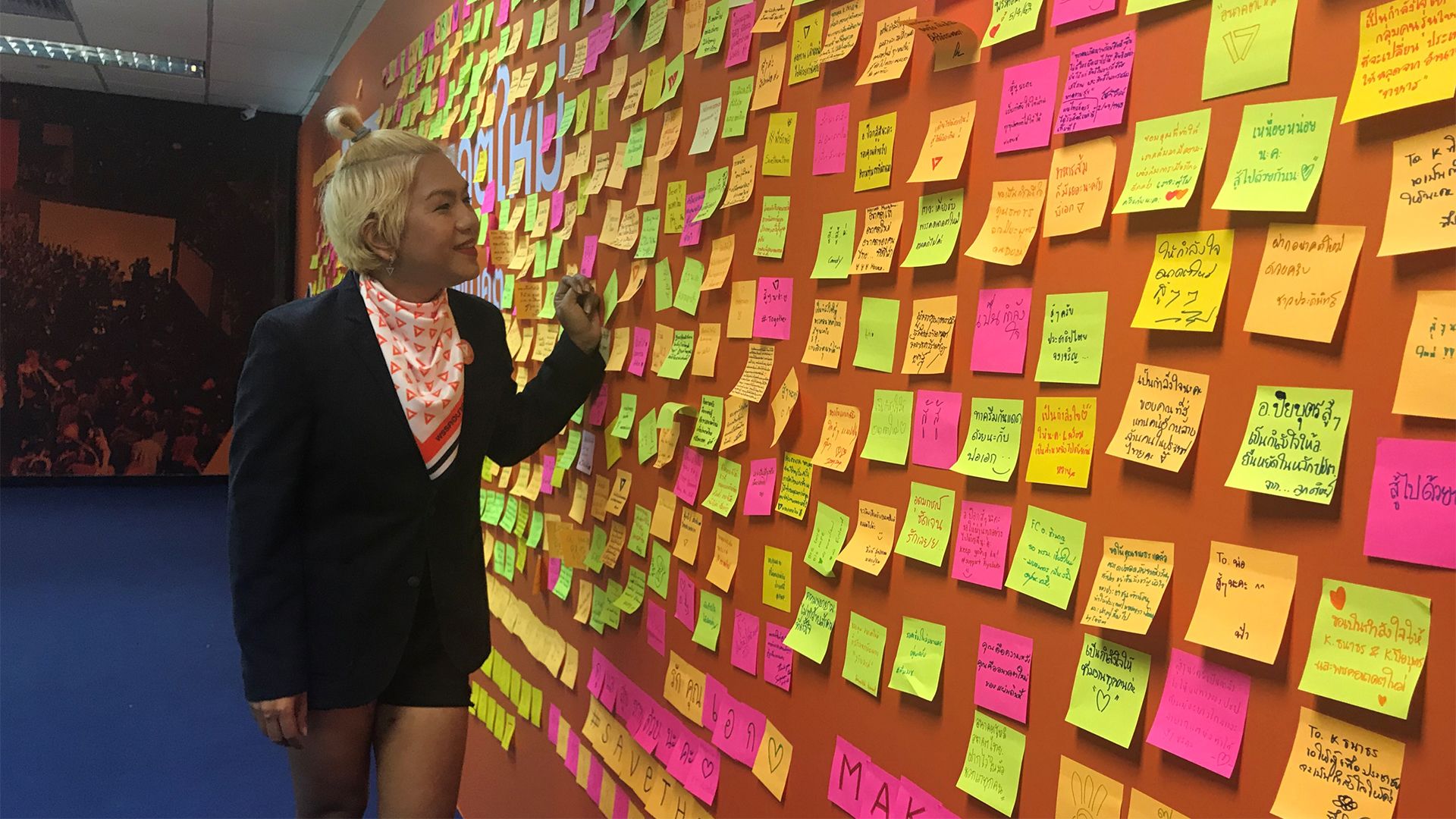
Tanwarin Sukkhapisit, Thailand's first transgender member of parliament, at the Bangkok office of the Future Forward Party, which came in third in the March 24 election, April 11, 2019. Thomson Reuters Foundation/Rina Chandran
Tanwarin Sukkhapisit, Thailand's first transgender member of parliament, at the Bangkok office of the Future Forward Party, which came in third in the March 24 election, April 11, 2019. Thomson Reuters Foundation/Rina Chandran
Tanwarin told the Thomson Reuters Foundation that political sympathy often does not translate into social understanding.
"Thailand may seem open and tolerant towards LGBT people, but LGBT people are treated as second-class citizens, and transgender people are the third gender."
Europe
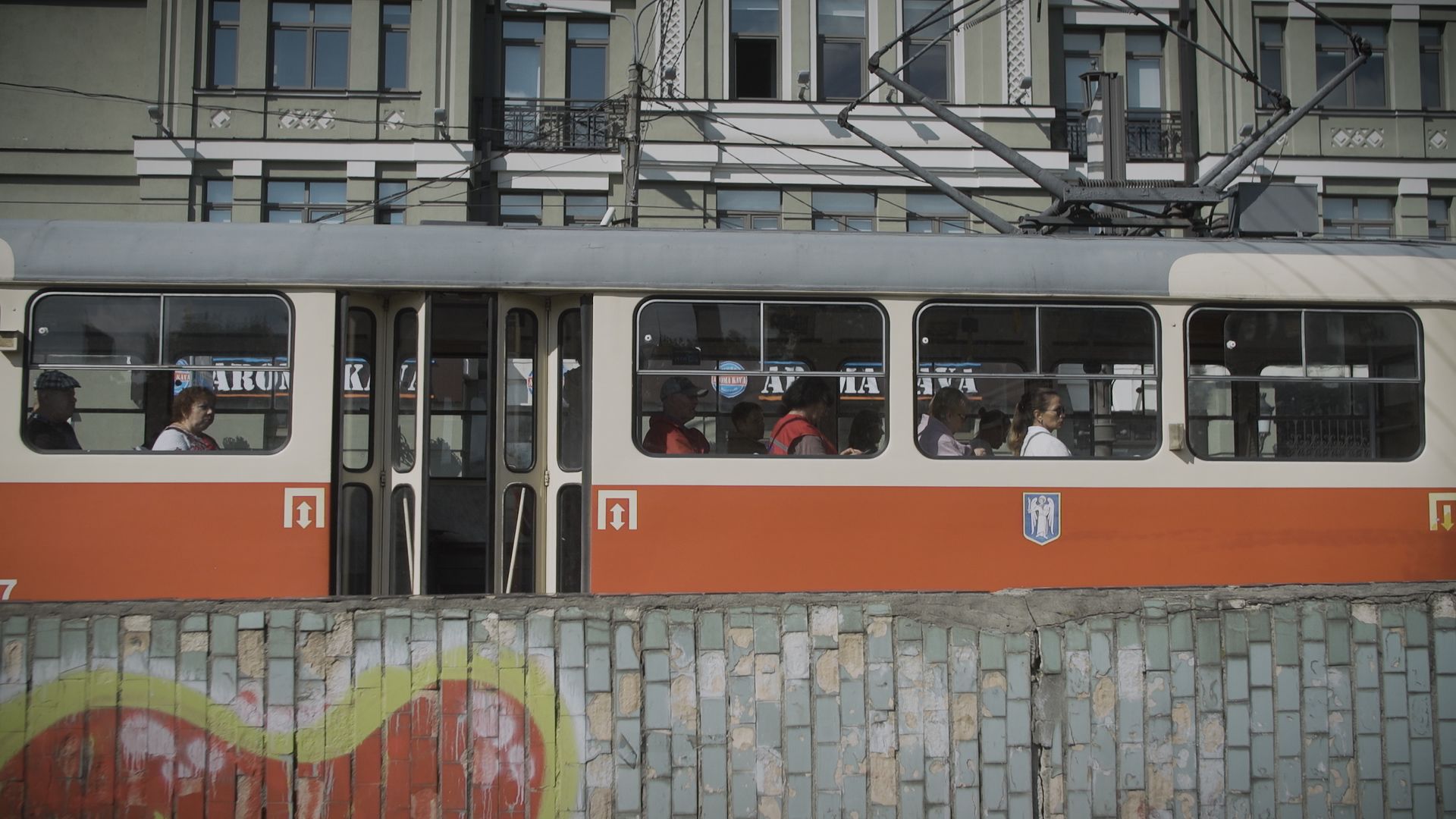
Europe remains at the forefront of LGBT+ rights around the world. Gay sex is legal in all 44 countries and a form of same-sex marriage or civil union is allowed by 28 countries.
Sixteen countries fully allow same-sex marriage, including Britain and France, while civil unions are recognised in a further 12, including Hungary and Estonia.
Within Europe, the focus has switched to transgender and intersex issues, noted the annual ILGA-Europe Rainbow Index review.
"In recent years, trans and intersex activism has provided much optimism," the report noted.
"In 2018 again, thanks to the tireless work of advocates for the human rights of trans people and of intersex people, the number of governments adopting legal gender recognition laws moving towards respecting the on principle of self-determination again increased and more and more governments are starting to discuss how to ban intersex surgeries."
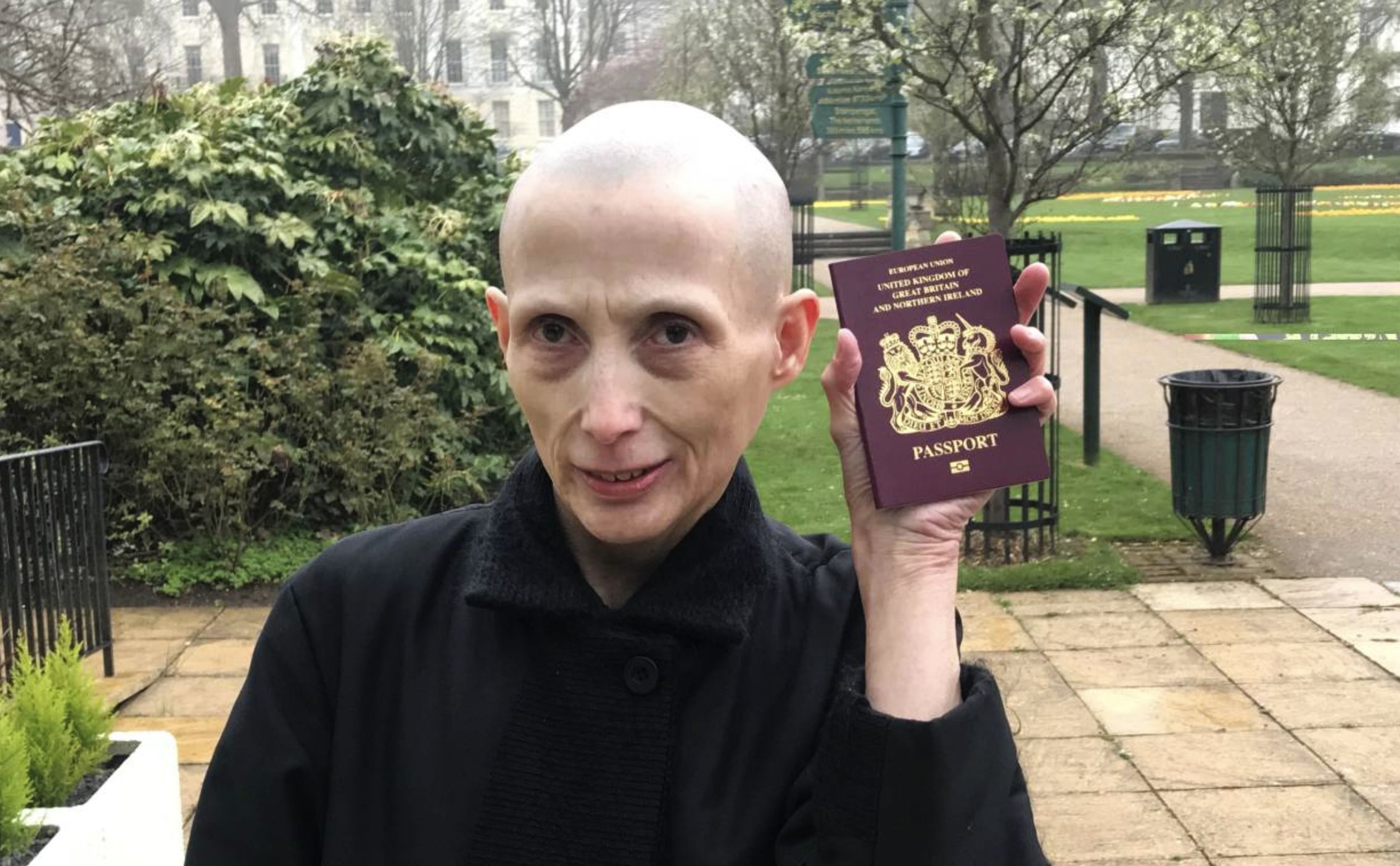
Christie Elan-Cane, a British campaigner for "genderless" passports, poses for a photo in Cheltenham, Britain, April 12, 2018. Thomson Reuters Foundation/Serena Chaudhry
Christie Elan-Cane, a British campaigner for "genderless" passports, poses for a photo in Cheltenham, Britain, April 12, 2018. Thomson Reuters Foundation/Serena Chaudhry
Yet in Britain in particular, transgender rights have been overshadowed by an increasingly toxic debate over whether they encroach on those of other women.
Questions have been raised as to whether this issue might fracture the LGBT+ community.
This must not happen, said Baroness Barker, LGBT spokeswoman for the Liberal Democrat party in the House of Lords.
"It matters, because we (LGBT+ people) are all outsiders and (on our own) we can be picked off by the forces that are against us," Barker told the Thomson Reuters Foundation
Bisexual men and women also complain of discrimination, not least from the wider gay and trans community.
"Because of all the stigma that bi people get from both the hetero and the gay community, we have much worse mental health, because we get homophobia from hetero people and bi phobia from both gay and from hetero people," said British bisexual activist Sali Owen, a consultant on LGBT+ issues.
Elsewhere in Europe, the former Soviet republic of Georgia has cancelled plans to hold the country's first Pride march after a wave of political unrest left hundreds injured and with threats from extreme right-wing groups and opposition from the influential Orthodox Church.
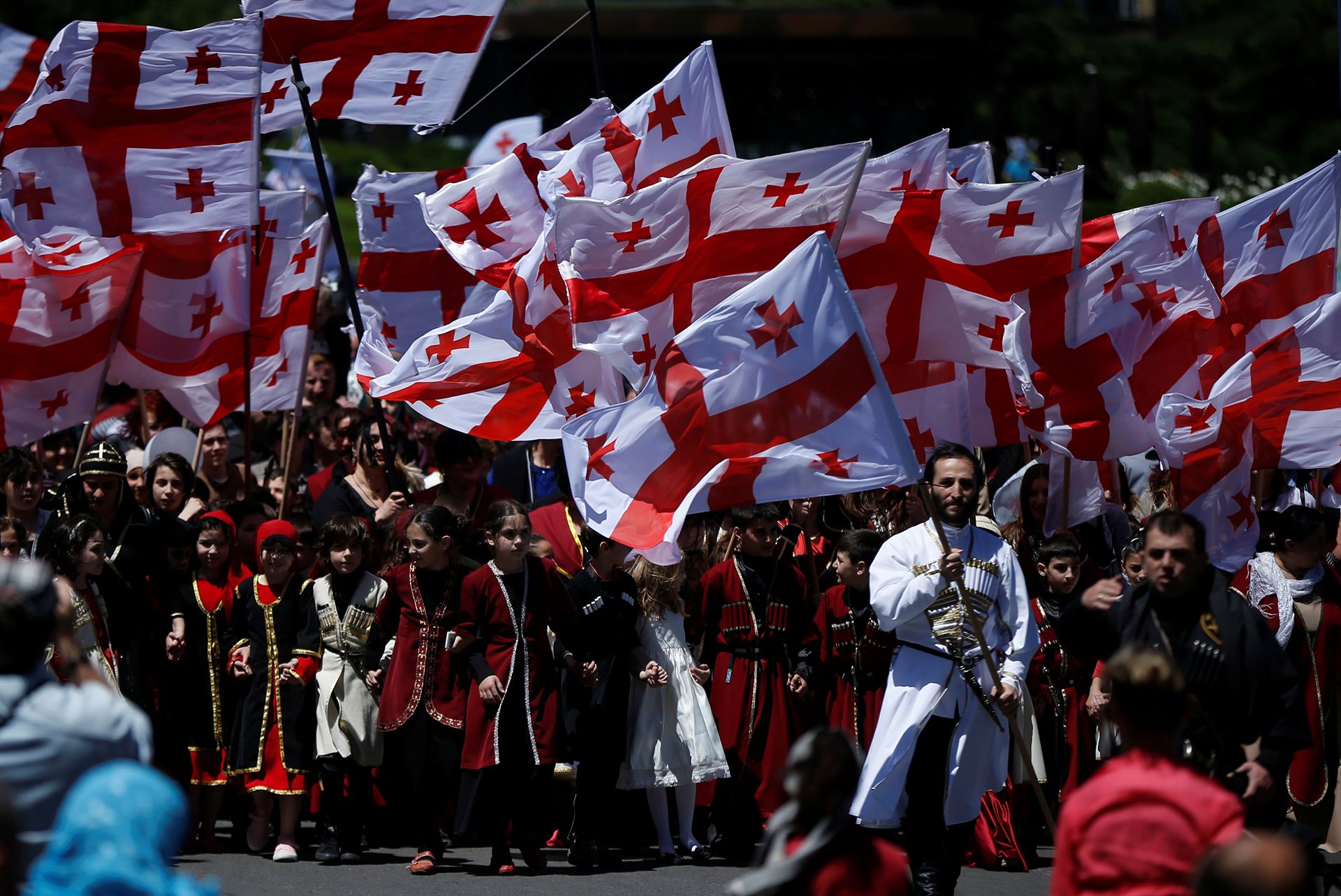
People march to mark the Day of Family Purity, established by Georgian Orthodox church opposite the International Day Against Homophobia and Transphobia in Tbilisi, Georgia, May 17, 2017. REUTERS/David Mdzinarishvili
People march to mark the Day of Family Purity, established by Georgian Orthodox church opposite the International Day Against Homophobia and Transphobia in Tbilisi, Georgia, May 17, 2017. REUTERS/David Mdzinarishvili
"Gay Pride in Tblisi ... is totally unacceptable," a statement by the Georgian Patriarchate, the office of the head of the country's Orthodox church, said on its website.
"The lifestyle that the LGBT people are engaged in is the sin of Sodom and thus contradicts both Christian faith and the teachings of traditional religions and moral values in general."
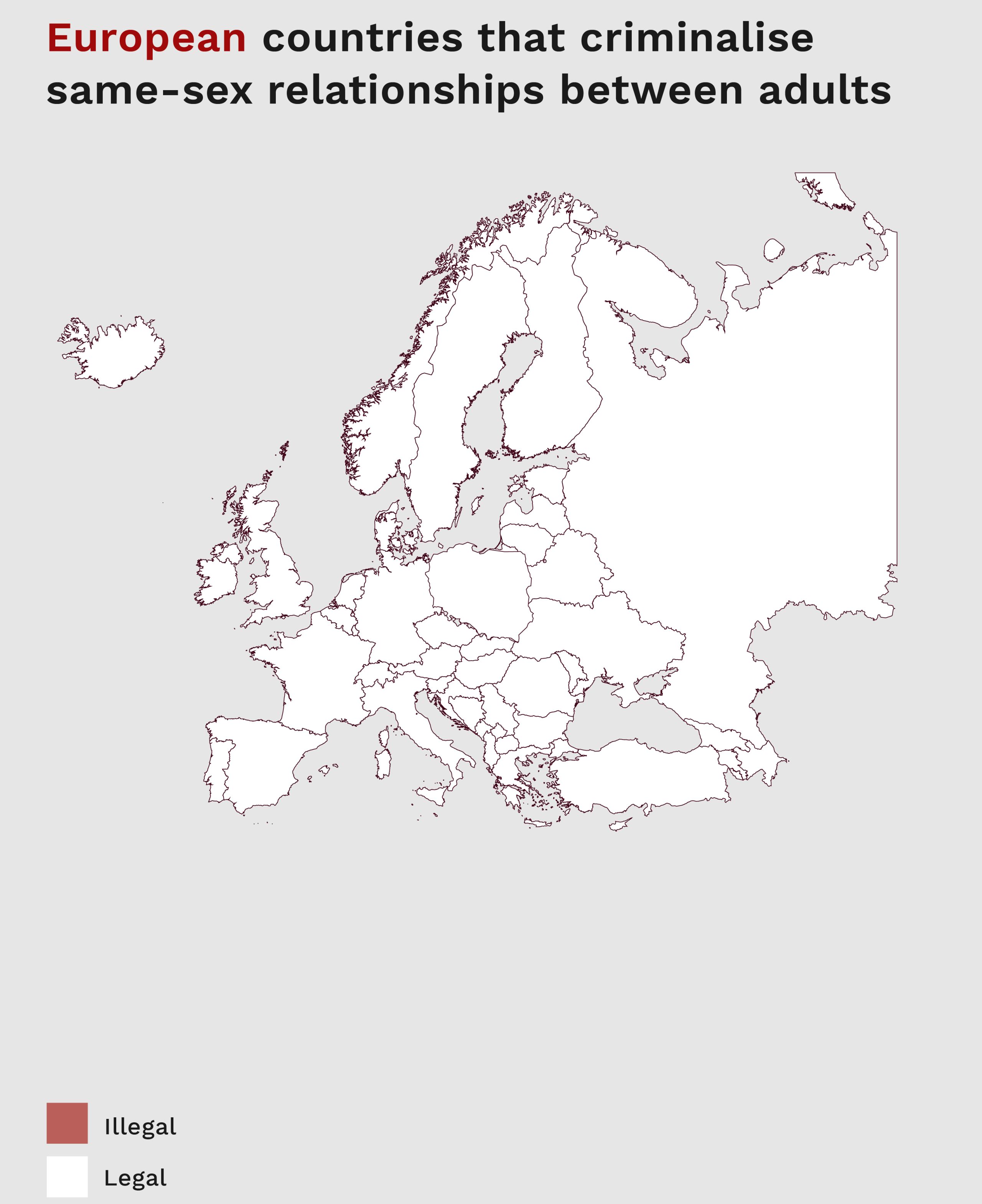
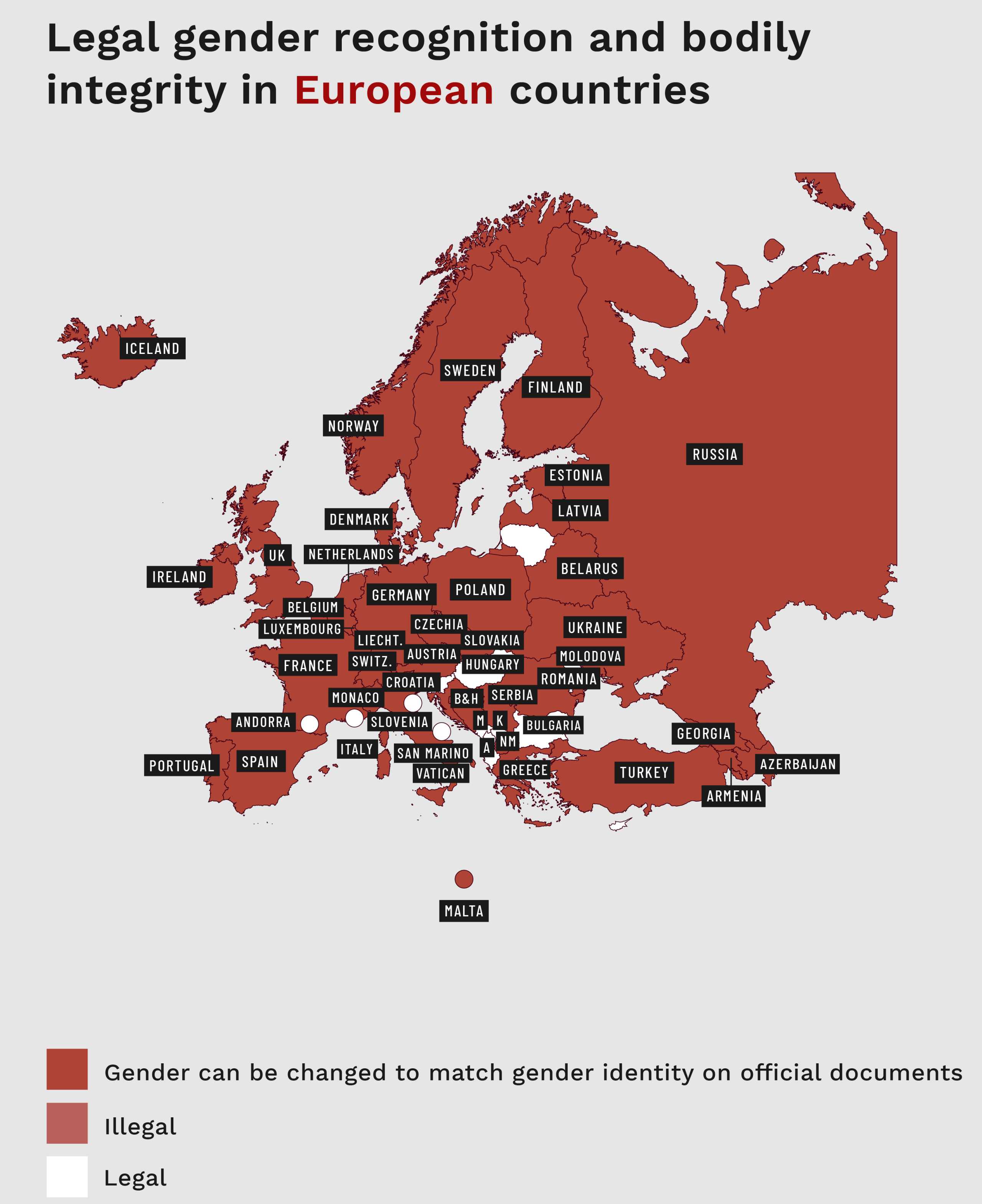
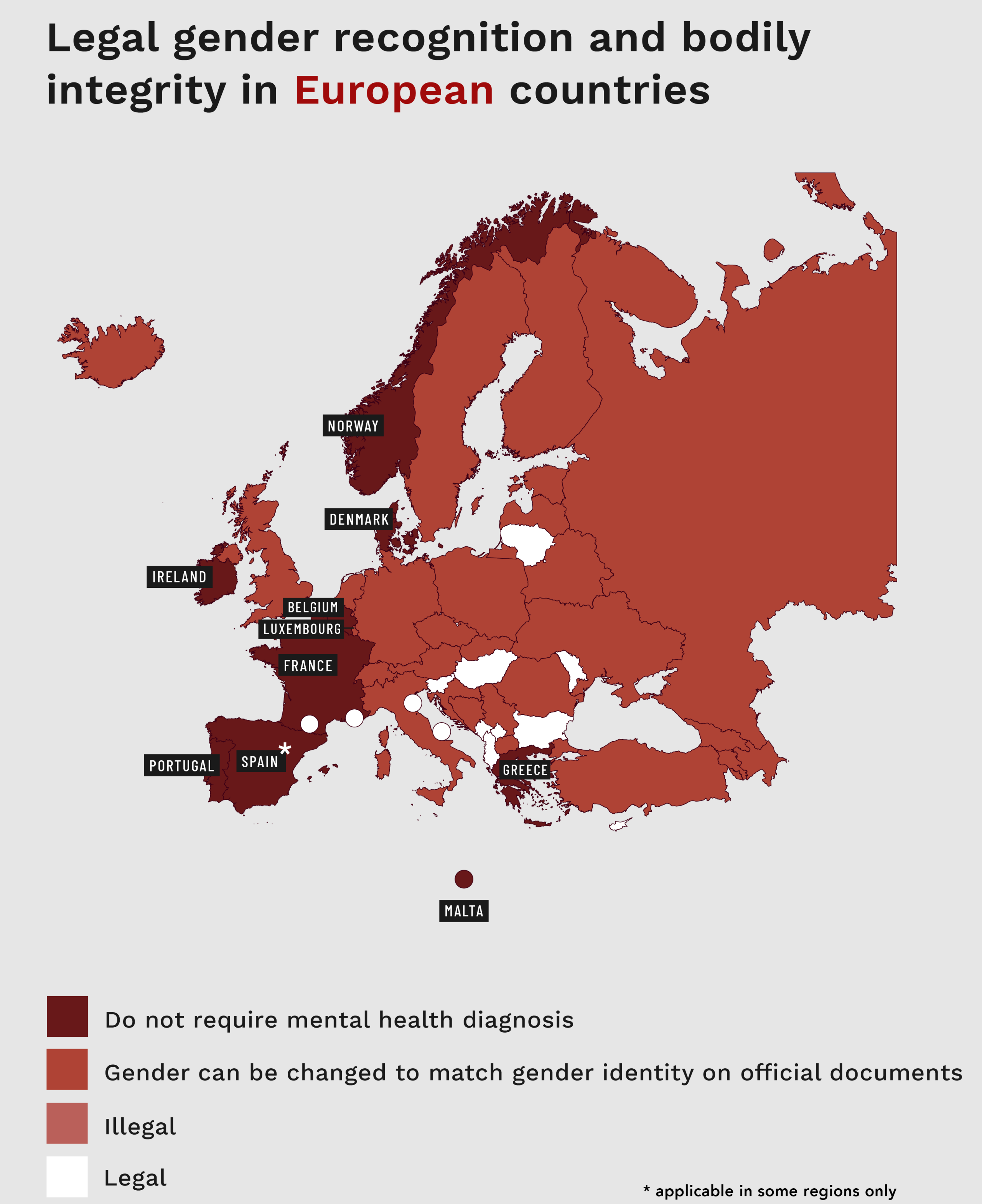
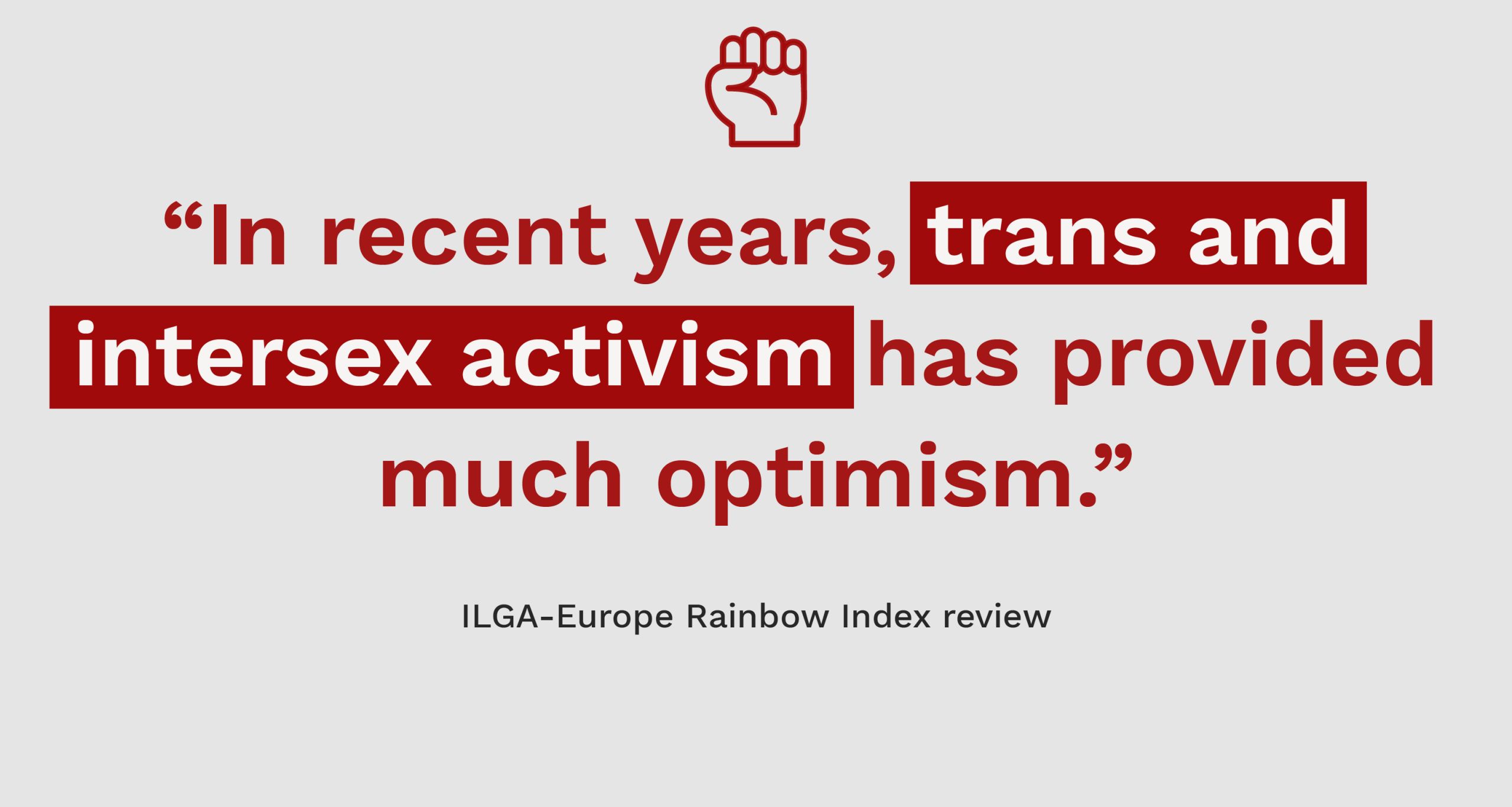
The future of
LGBT+ rights
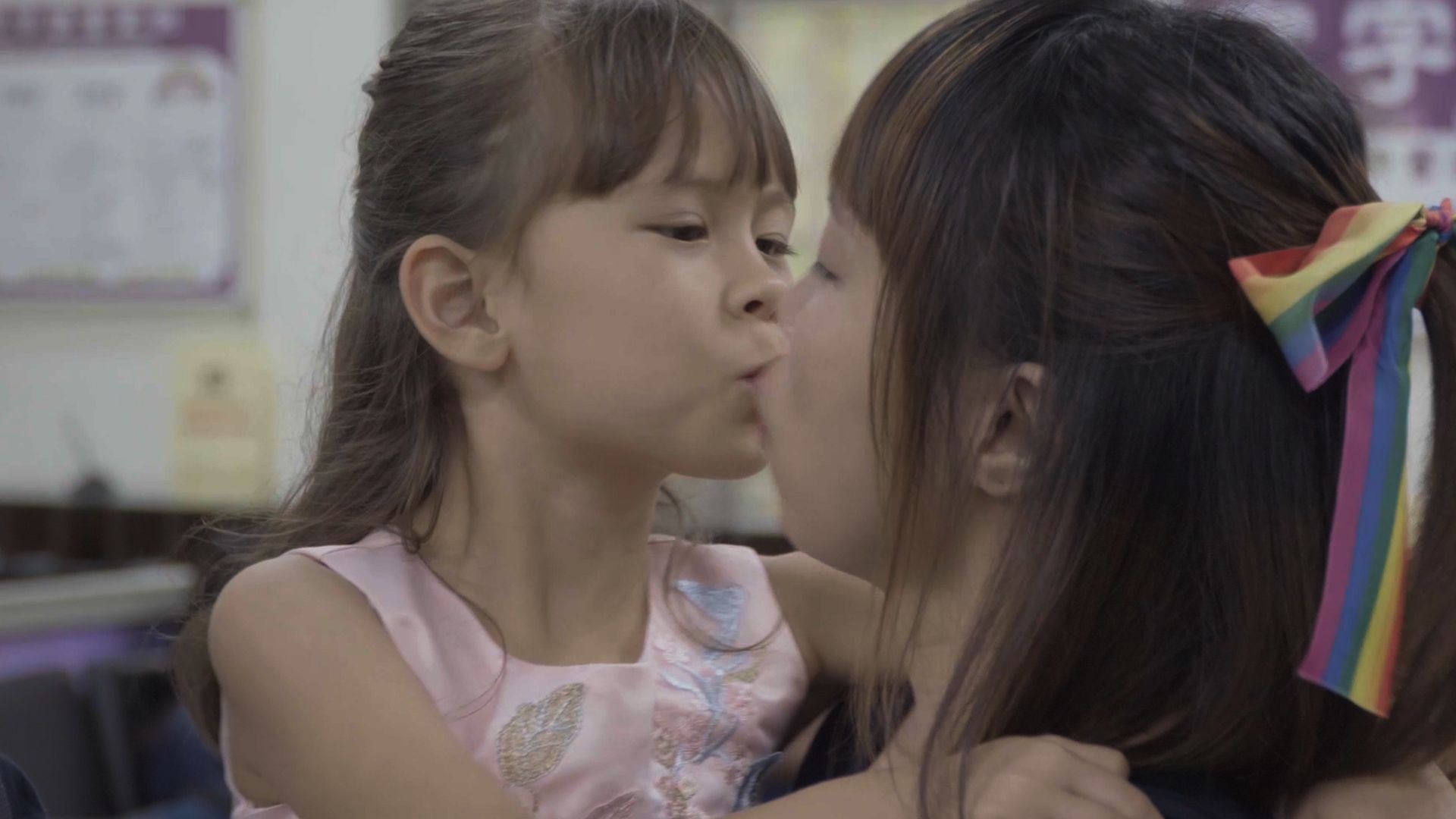
Fifty years on, Stonewall remains a symbol, said LGBT+ rights activist Power.
"I think it's unfortunate that people argue over who threw the first brick because the relevant thing is not who threw the first brick, but who built the movement, who stayed around and who actually did the tough work," she said.
Many campaigners - from non-governmental organisations and the business community - remain optimistic for the future, but recognise there is still much work to be done.
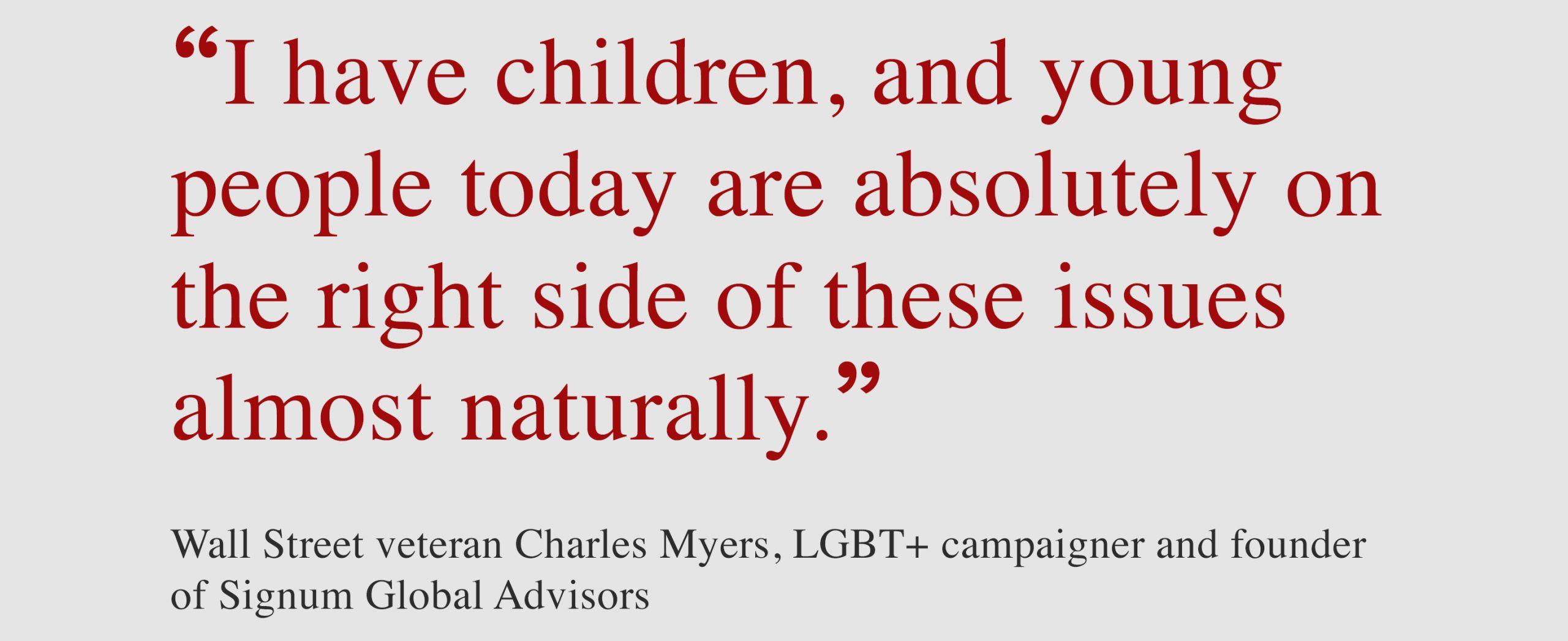
"In the end I am very optimistic but we have a rough couple of years to get through." said Wall Street veteran Charles Myers, founder of Signum Global Advisors.
But the advances this year have offered cause for optimism.
"We're witnessing an important moment in history as these victories will send out positive shockwaves across the world and inspire more activists to continue their fight for LGBT+ rights," said Mathias Wasik, director of programs at international LGBT rights group All Out.
The focus on rights has switched in the global west to look at family-based issues surrounding surrogacy and adoption laws as well as intersex and trans rights, activists said.
Yet while it has become commonplace to presume the fight for LGBT+ rights has largely been won, campaigners must not become complacent, said author and LGBT+ historian Marcus.
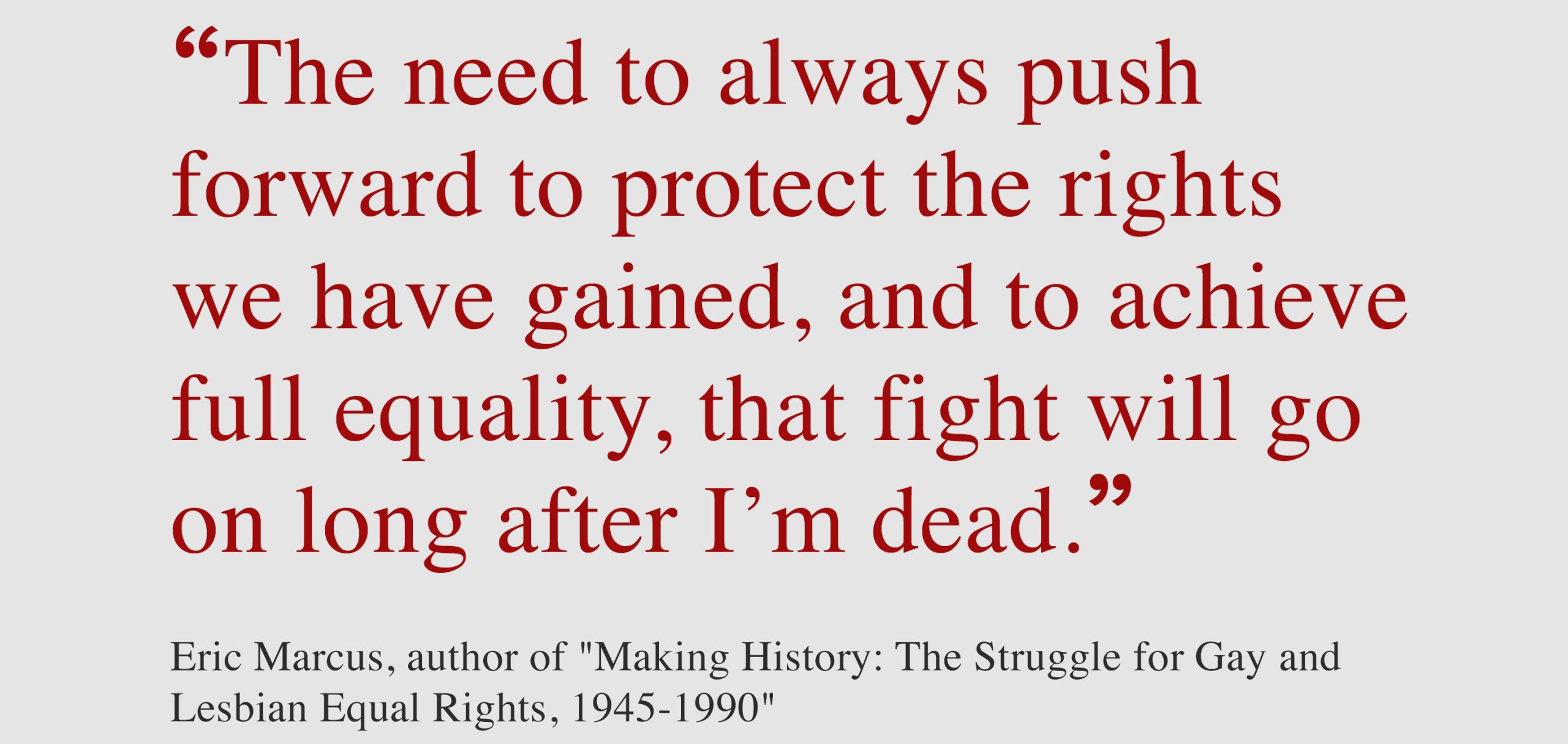
"That's decades in the making, if not centuries." he said.

Credits
Words
Hugo Greenhalgh
Multimedia producer
Jeong-One Park
Reporters
Michael Taylor, Oscar Lopez, Fabio Teixeira, Rina Chandran, Beh Lih Yi, Nita Bhalla
Research
Amber Milne, Rachel Savage
Graphic designers
Teia Kay, Nura Ali
Multimedia executive producer
Nicky Milne
Text editing
Belinda Goldsmith

Videos
Stonewall 50: Where next for LGBTQ+ lives?
Directors: Nicky Milne, Shanshan Chen. Editor: Timothy Moss
DOPs: Jim Bishop, Shanshan Chen, Chih Kang Chiang, Theo Hessing, Nicky Milne. Executive producer: Nicky Milne
Stonewall Inn, United States
DOP: Michael Crommett. Editor: Jeong-One Park. Executive producer: Nicky Milne
Same-sex wedding, Taiwan
DOP: Chih Kang Chiang. Editor: Gigi Wong. Executive producer: Nicky Milne
Big Mamas, Guinea-Bissau
DOP: Nellie Peyton. Editor: Steven Ager, Chris Creegan. Producer: Jeong-One Park
Archive courtesy of
Reuters, Kinolibrary, Film Archives Inc., CBS,
Richard C. Wandel collection and Leonard Fink collection,
The LGBT Community Center National History Archive

